[[resultsTitle]]
293 items in AI
To contrast with the ultimately optimistic notes from the WEF report (net gain of 78 million jobs), this amazing essay outlines another theory - AI will improve the ability of capital to buy outcomes which previously required hiring people to produce those outcomes. Moreover, the incentive for States to do well by their people diverges once the people lose the leverage they have by withholding their once valuable labour. It’s not a comforting read but important one.
Issue #431 published 12 Jan 2025
Fireship is one of the best YT channels out there - manages to be funny, self deprecating, comprehensive yet succinct. This one does an amazing job of sunmarising the tech innovations in 2024 (including why Rust is the language of the future…) and then casting a future look at what’s down the pipe for us in 2025. Includes some coverage of the tech job market, citing brainfooder Amit Taylor’s work at TrueUp. Have a watch.
Issue #430 published 5 Jan 2025
Generative AI agent can be defined as an application that attempts to achieve a goal by observing the world and acting upon it using the tools that it has at its disposal. Agents are autonomous and can act independently of human intervention, especially when provided with proper goals or objectives they are meant to achieve.
If 2025 is going to be the year of ‘Agentic AI’, then we best better have an understanding of what we mean by the term. Whitepaper from Google which outlines their vision of it. I think we’re at least 12 months away from seeing Agentic AI in recruiting…if I’m wrong, let me know otherwise….
Issue #430 published 5 Jan 2025
NotebookLLM
AI
Final link on podcast segment ….isn’t actually a podcast. It’s actually the most impressive AI tool which I’ve come across in 2024, and I’ve been using it mainly to create audio versions of research papers - essentially, a podcast from any material you feed it with. It’s been great to listen stuff that you would otherwise never really read. Free and I highly recommend it, especially if you are one of those who does indeed download a 200 page PDF fully with honest intent to read it!
Issue #428 published 22 Dec 2024
GenAI outputs are festooned with caveats and disclaimers, so you’ll be familiar with a lot of words being overused here. ‘Its important to note’ is my favourite 🤣. Still, it is better to put these in rather than deliver overly confident speculations which we humans are overly inclined to uncritically accept. Which words / terms do you see most when you used Gen AI? PS: you can use the words list here to create an exclusion prompt if you’re really tired of these outputs.
Issue #428 published 22 Dec 2024
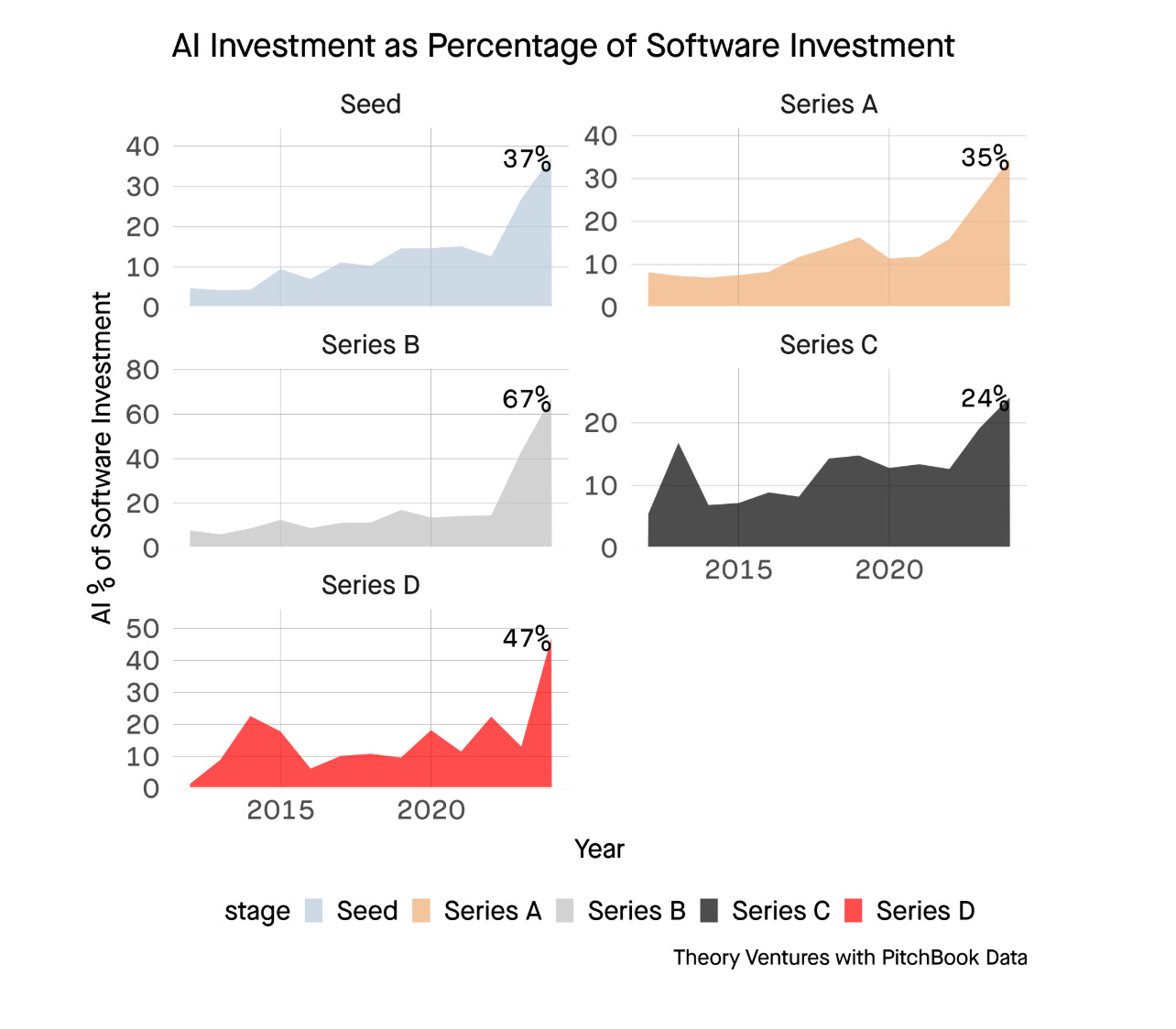
Issue #427 published 15 Dec 2024
Interesting and counter intuitive correlation between high degree of AI exposure and high level of compensation for those most exposed in this piece of research from Revelio Labs is best explained by those workers being quick to adopt AI and convert it into productivity and then to compensation. AI-enablement will make you richer, at the expense of those who don’t adopt - quite the motivation.
Issue #425 published 1 Dec 2024
Benedict Evans produces only one presentation per year. Each one is meticulously researched and cross referenced, yet also accessible to the laity. It’s about tech, AI, work and always a must read.
Issue #425 published 1 Dec 2024
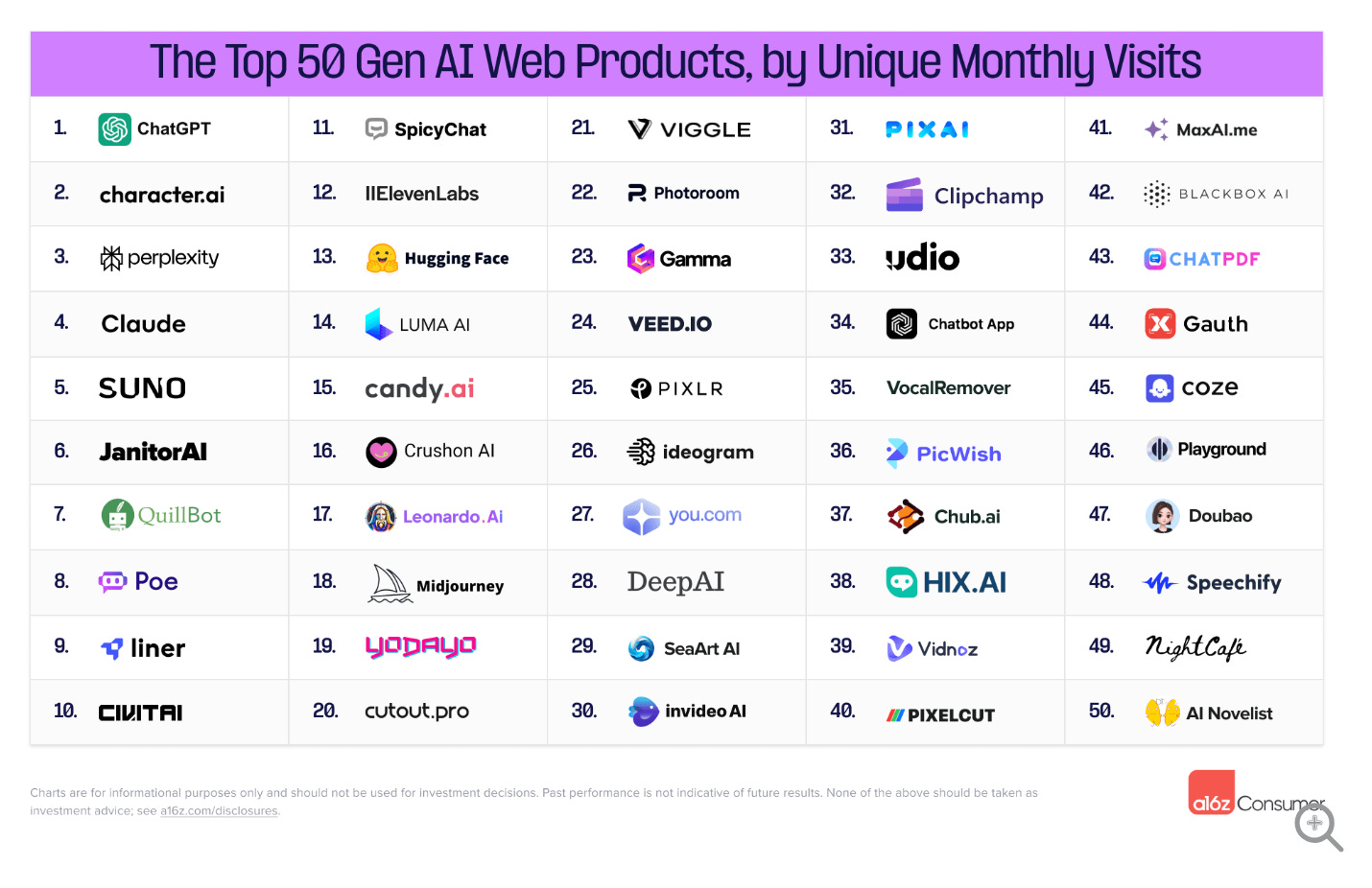
Issue #425 published 1 Dec 2024
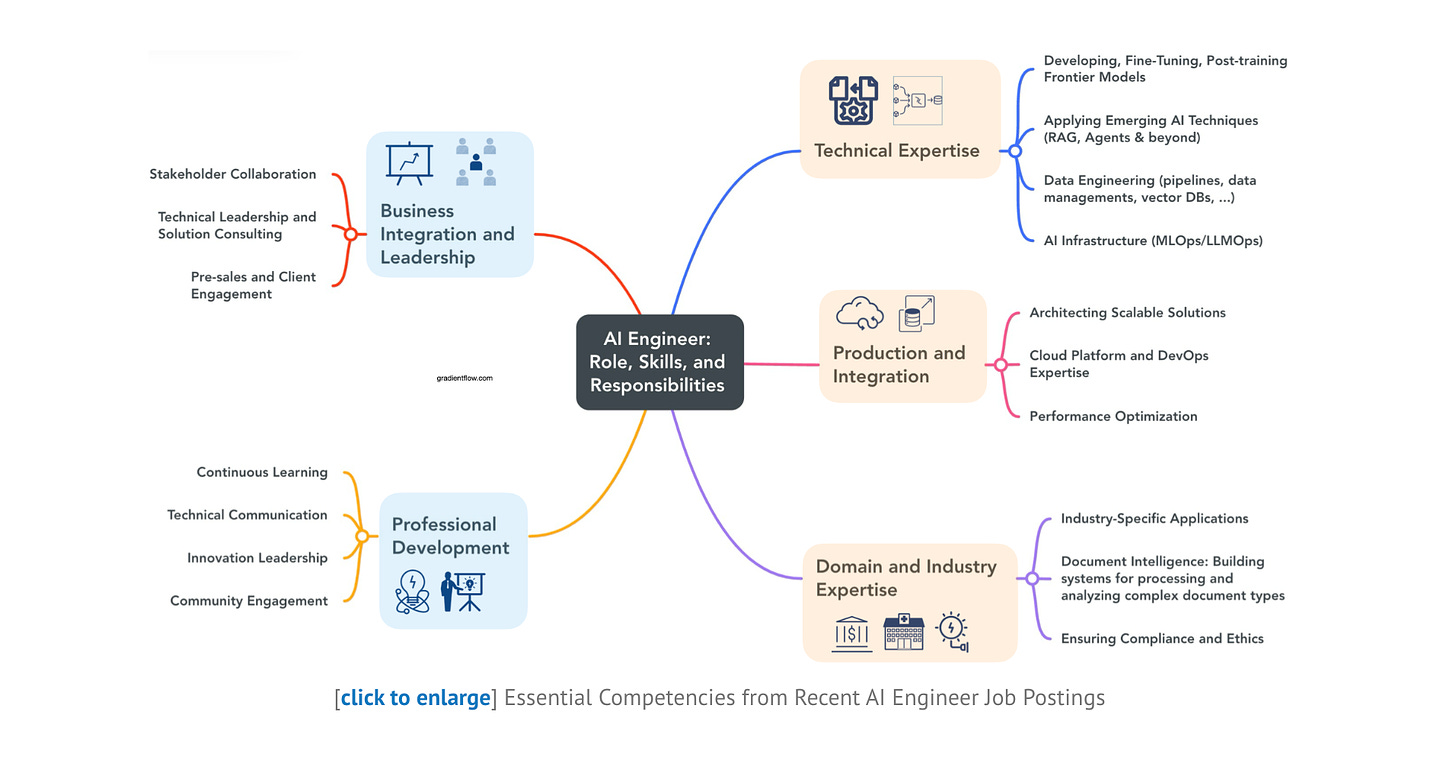
Issue #424 published 24 Nov 2024
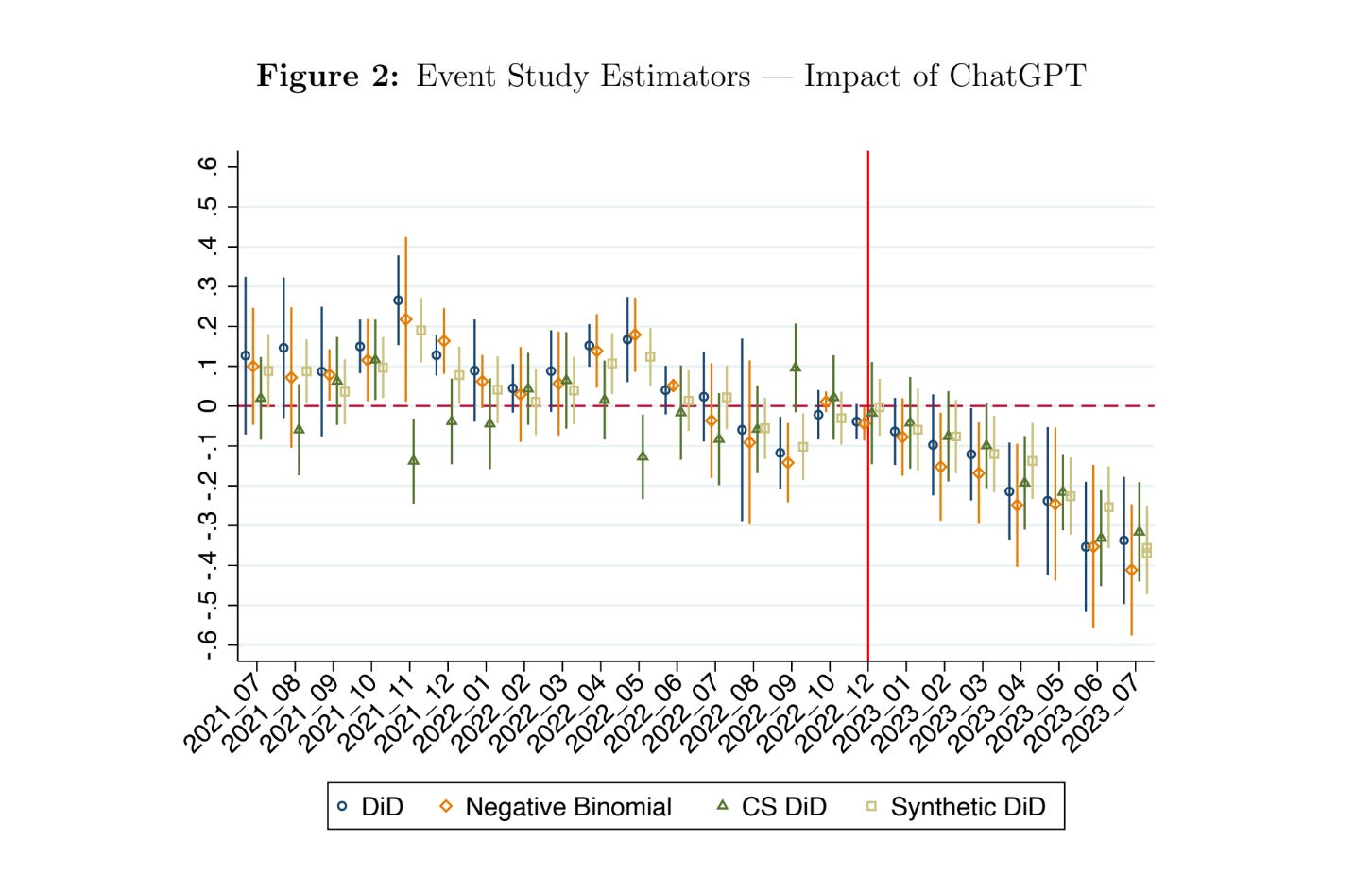
Issue #423 published 17 Nov 2024
Boolean Black Belt may be over, but I am very pleased to see the high impact return of brainfooder Glen Cathey, who is now frequently posting on LinkedIn, mainly on the topic of AI. As Director of Innovation at Randstad, as well as a founding father of the whole sourcing idea, Glen’s commentary is as credible, comprehensive and thought provoking as it comes. This post is an example of the quality of his output - a must read, on the AI Agents. And Glen is a must follow of course.
Issue #423 published 17 Nov 2024
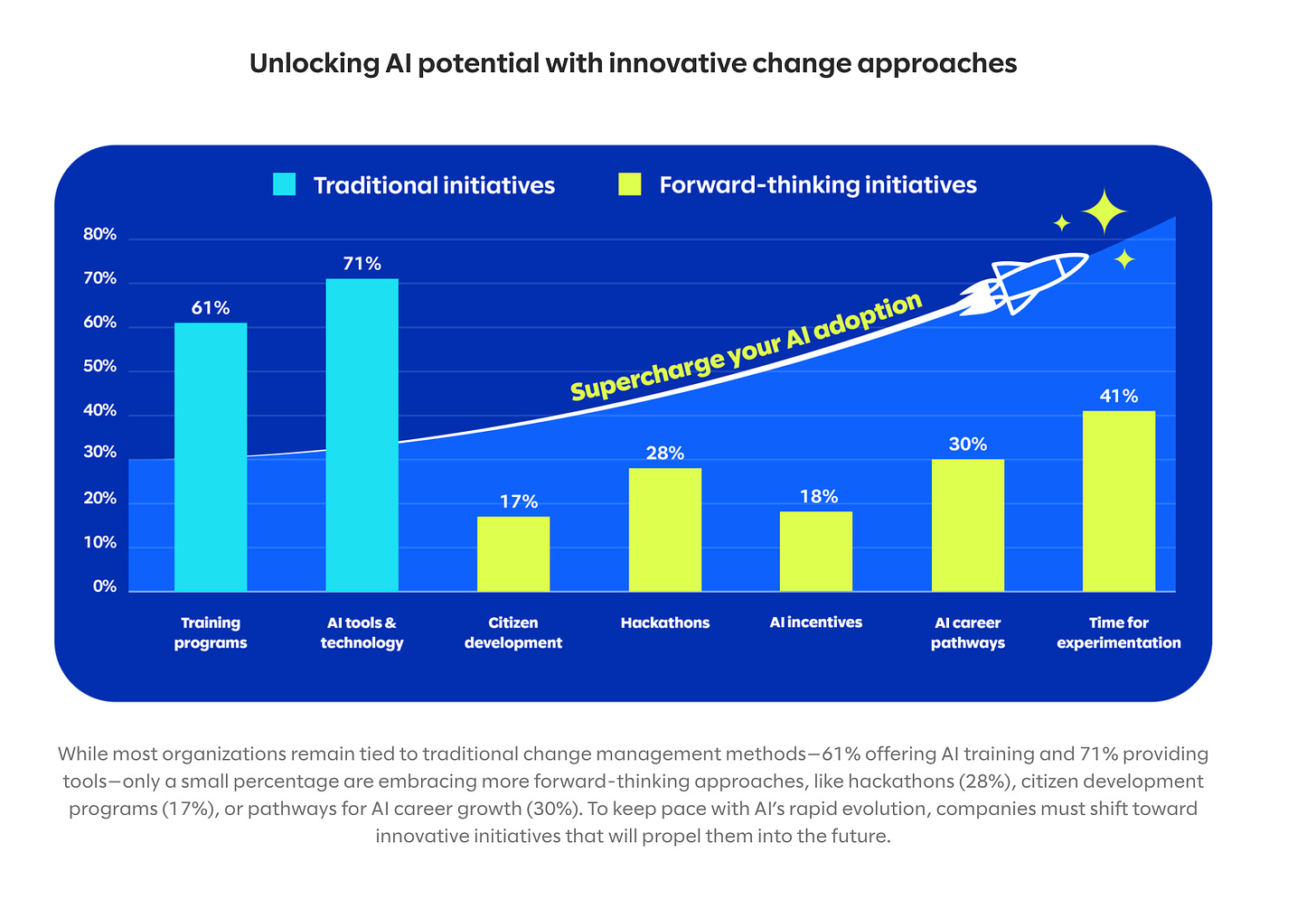
Issue #423 published 17 Nov 2024
Our friends at Eightfold do a wonderful webinar series called The Talent Table and I was delighted to take part in the Halloween special - Bring Back the Dead! We talk human heavy / AI-lite hiring for outbound, but human lite / AI-heavy for inbound. Free to watch but you got to register here
Issue #422 published 10 Nov 2024
There is no question there is ‘overcapacity’ currently in AI Startups - ‘too many’ companies chasing market dominance, with few currently making revenue much less profit, and many destined to fail. Great 13 minute discussion on the state the market, why there will be a bust, and why this is OK. One of the best YT channels out there, give it a subscribe.
Issue #420 published 27 Oct 2024
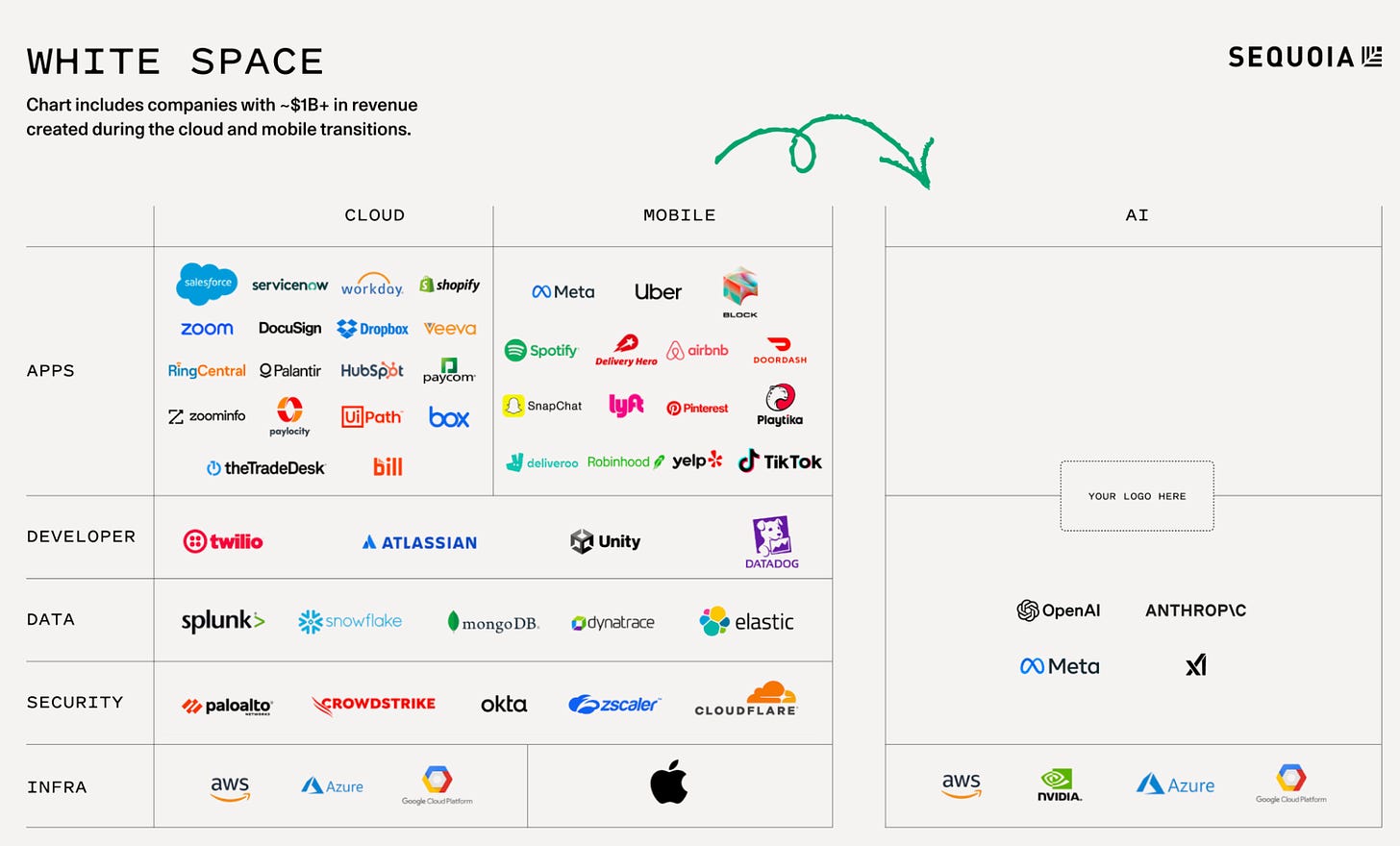
Issue #420 published 27 Oct 2024
It’s the ‘Nokia of the recruitment industry’ - a great title for the legendary Kalpesh Baxi. I’ve got to know Kalpesh over the past couple years and there are few people who are as motivated and effective in supporting the community. Great conversation on the RecTalk Podcast - important to see and hear the agency side of the conversation.
Issue #419 published 20 Oct 2024
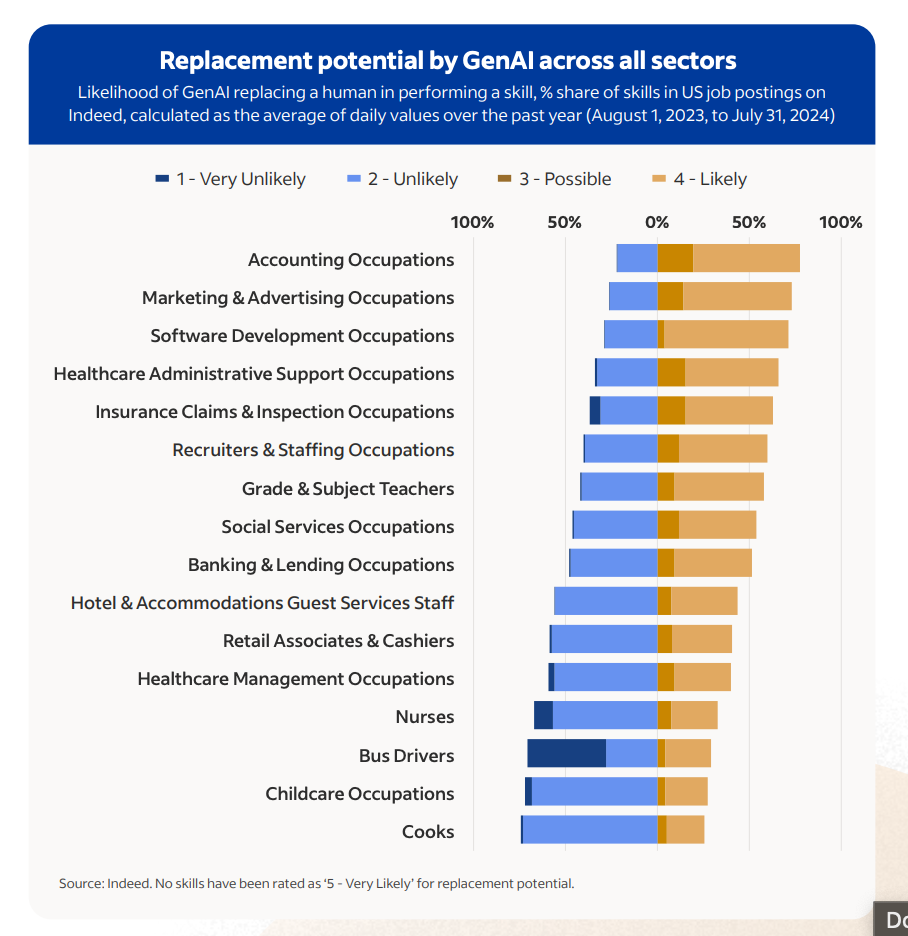
Issue #419 published 20 Oct 2024
One of the annual classics, the State of the AI Report arrives on it’s 7th edition. Its a Mary Meeker style 200+ page monster, but as comprehensive a view of the state of artificial intelligence as you’re going to find. Probably too dense in places, but one of those which should be the starting point for further research on topics you’re particularly interested in. Must read for everyone here. H/T to brainfooder Martyn Redstone for the share in the online community.
Issue #419 published 20 Oct 2024
Fantastic to see the great Bill Boorman finally get into the podcast game. It will come to no surprise to anyone to he’s a natural at having great conversations with smart people in the industry, which Matt Charney certainly is. Have a listen folks.
Issue #418 published 13 Oct 2024
10,000 desk workers surveyed by Slack on the usage of AI in work. Key line in the report is executive enthusiasm for AI-enablement is far ahead of employee adoption, a tension which might actually describe rational assessment of self interest from both parties. Survey published in June 2024, accessible reading.
Issue #415 published 22 Sep 2024
The no-notification update on LinkedIn’s terms and conditions last week that they were going to use users posts to train their AI on content creation rightly met with outrage from prominent users of the platform. Currently doing a vote on it on LinkedIn, so you can monitor how people think about it here. EU, UK, Switzerland exempt for now, legacy of the legislative divergency from the US - something we can be thank the outgoing Thierry Breton for? For those interested in EU AI Act and how it impacts recruiters, HR and recruitment tech founders, we did Brainfood Live on it last Friday - worth a rewatch in case you missed it. Thanks to brainfooder Debbie Fraser for sharing in the online community.
Issue #415 published 22 Sep 2024
The escalating contest between LinkedIn and the automated bot makers is not without casualties - the maker of mass apply bot has now unfortunately lost his own personal LinkedIn account as a direct result of doing so - LinkedIn not playing around. I’m not conflicted about this - users should not use their accounts for a single violation - it appears in the case of the mass apply bot, the developer was a jobseeker who simply made an optimisation public. Campaign to bring back Fede starts here! H/T to brainfooder Christopher Cruz for the share in the online community.
Issue #414 published 15 Sep 2024
What is the state of AI labour market? I’m going to be joining the crew at X-team next month to discuss (register here), and this report from Labour Analytics firm Lightcast is going to come in handy. Plenty of interesting insights, including the surprising dip in AI demand in 2023 and the premium paid by employers for non-technical workers with Gen AI skills. Great interactive - read and share.
Issue #414 published 15 Sep 2024
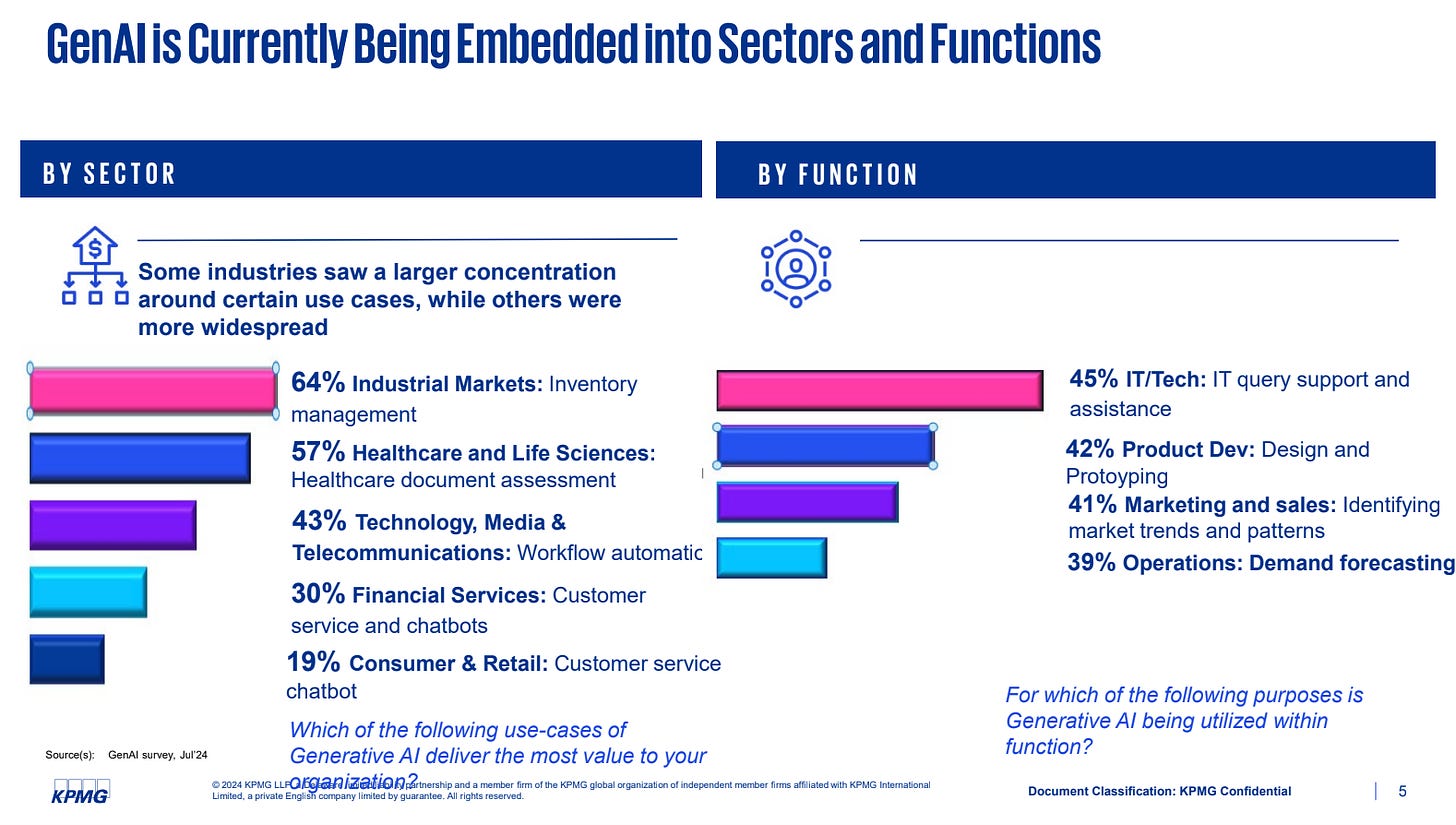
Issue #413 published 8 Sep 2024
This is the Emad Mostaque interview - 2 hours long, but I found this to be very easy listening, as both Emad and Peter have the ability to speak on complex topics in common language, which incidentally, might be the skill to have in the AI-enabled world. Expansion on post No8, How to Think About AI, this interview dives deeper into the socio-political-economic impacts of AI. Entertaining and essential
Issue #411 published 25 Aug 2024
Emad Mostaque - the former CEO of Stability AI - wrote this post on the current and future state of AI. The centralised vs decentralised, closed vs open debate is one which is being had amongst tech entrepreneurs, but needs to be more widely understood by the masses. AI as a newly discovered Atlantis populated by highly capable yet currently naive graduates, is a wonderfully grokkable analogy. Lots of brainfood here, so have a read. NB: Emad’s interview with Peter Diamandis expands on this post.
Issue #411 published 25 Aug 2024
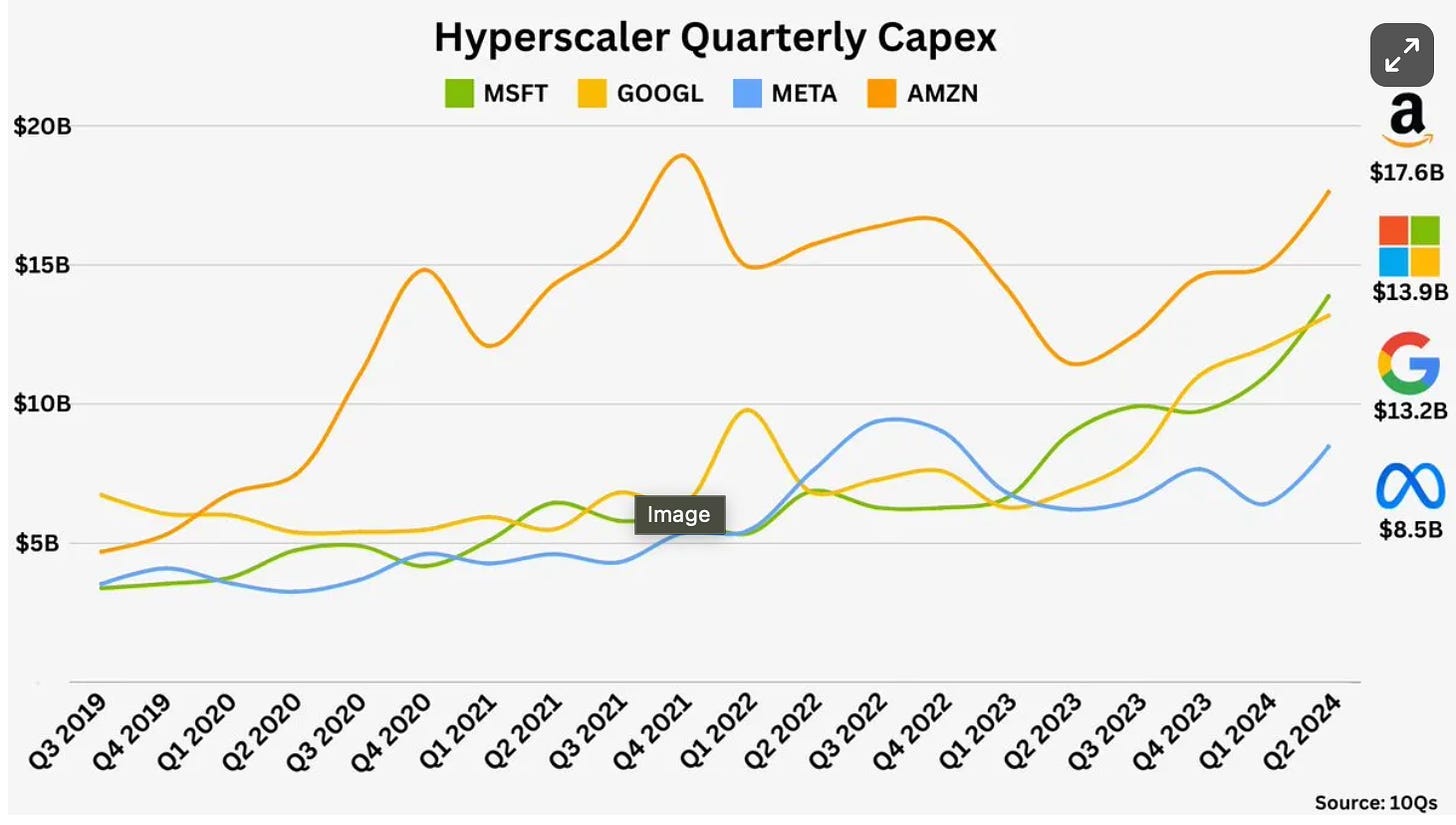
Issue #409 published 11 Aug 2024
This post should be read along with the Ben Evan’s post above, as well as Goldman Sach’s Top of Mind GenAI critique, which arguably sparked the discussion on the potential overvaluation of AI stocks. This post picks out a thread which is resonant for me - AI is not overhyped, we’re not seeing transformation because switching costs are too high for most workers, who are currently maxed out. What we need - are AI implementors. It’s notable too that the main beneficiaries of the AI revolution so far as the professional implementors in big consultancies. Don’t see any reason why a few of us in this community don’t grab some of this market..
Issue #408 published 4 Aug 2024
Ben Evans is one of the most astute readers of tech trends, and it’s shame that X has become so toxic that he’s decided to leave the platform. His commentary is now confined mainly to his website and newsletter and I would recommend any members here interested in the future of work / AI to subscribe. This essay on the state of AI is an example of his erudition - AI is here, but transformation is messy and we might not be able to skip the painful process of finding product / market fit.
Issue #408 published 4 Aug 2024
I am getting addicted to this Youtube channel, I think it is the lo-fi production value and the presenter’s dead pan style. Educational stuff though and laying the ground work for the challenges of the new Labour government - it is a good listen.
PS: if you want to join a conversation on this topic, we’re going to be discussing the implications to recruiters, TA and HR of the new government on Brainfood Live next month - register here
PS: if you want to join a conversation on this topic, we’re going to be discussing the implications to recruiters, TA and HR of the new government on Brainfood Live next month - register here
Issue #407 published 28 Jul 2024
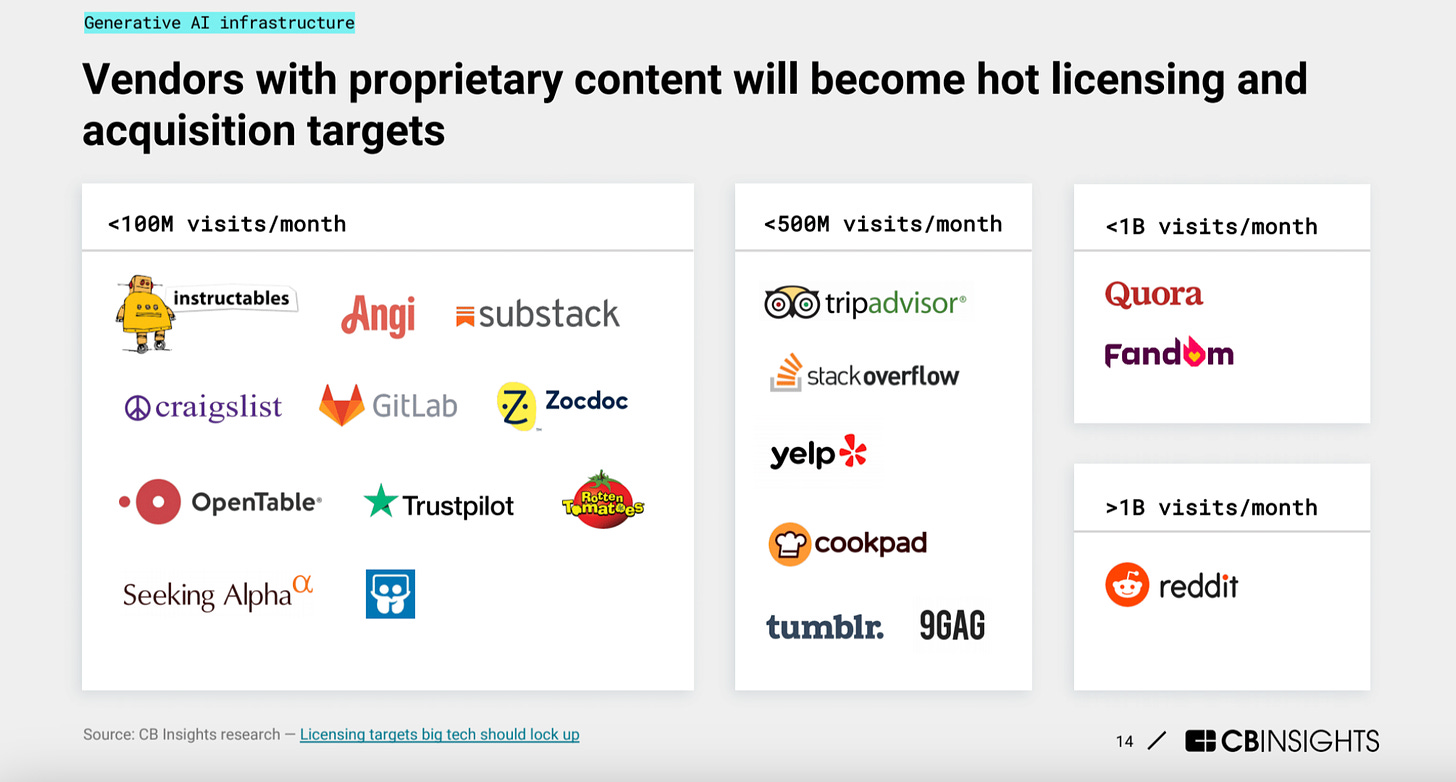
Issue #407 published 28 Jul 2024
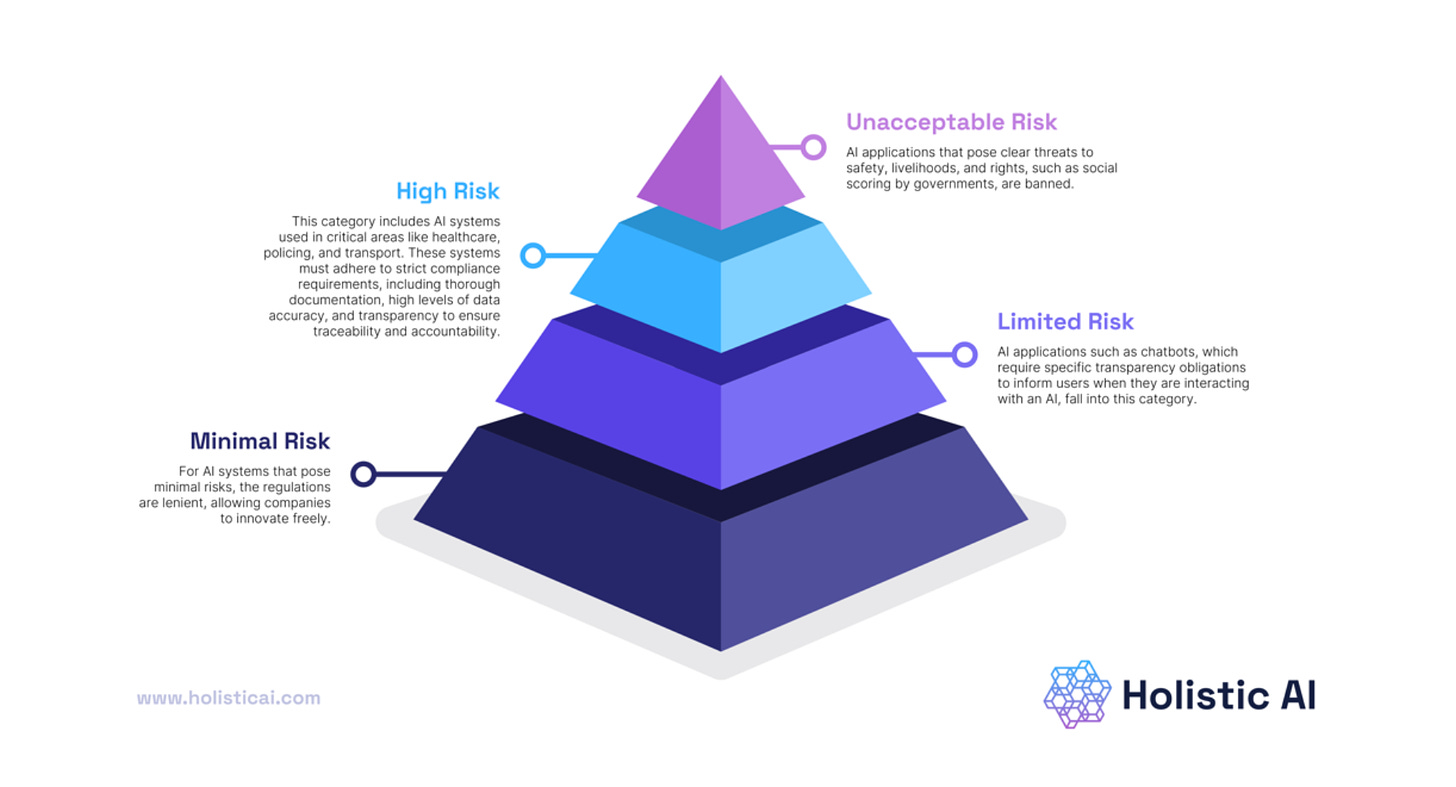
Issue #407 published 28 Jul 2024
Ethan Mollick has become of the most important commentators on AI + future of work. He’s a great communicator in any medium (X, substack) and also on youtube, as he delivers a virtual presentation on the impact of AI and future of work. Great watch / listen.
Issue #406 published 21 Jul 2024
The Internet used to be full of blog post like this - first person shooter, zero attention to SEO and definitely not ‘rewrite with AI’. It’s messy, flawed yet compulsive account from a ‘blue collar’ software developer who got into the industry in time to experience it’s heyday (2021) before now see its decline and AI-driven existential crisis. I think OP tells the story that will resonate with a lot of knowledge workers and his recommendations on mindset and future proofing are applicable to all. Read this.
Issue #405 published 14 Jul 2024
Good podcast on how software engineers think about AI-assisted code. We’re casually moving toward an end point where entry level candidates will have to cross a growing AI moat created by senior incumbents.
Issue #404 published 7 Jul 2024
That stock prices represent investor speculation rather than fundaments about the business isn’t a lesson we should need to learn in 2024 but it seems we always forget that demand drives prices, which can drive further demand, even whilst the underlying business remains unchanged. VC’s beginning to ask the question - when will AI companies make the money to satisfy investor return? The answer is…probably never.
Issue #404 published 7 Jul 2024
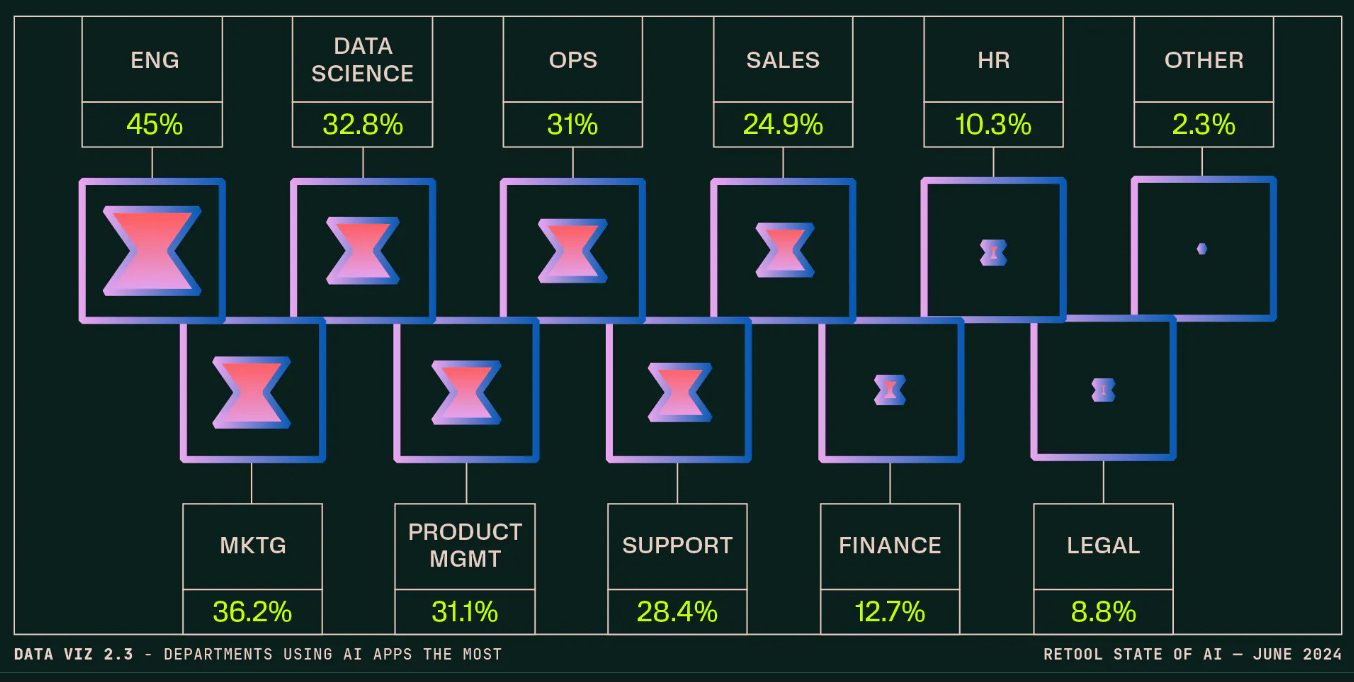
Issue #404 published 7 Jul 2024
Brainfooder Sam Berthoud is a natural interviewer and I am backing this podcast to become one of the best in the industry in time. This time, we have a thrilling and educational conversation with Rob McCargow and Deniz Konak Ozturk of PwC, on the topic of Responsible AI. Must watch folks.
Issue #401 published 16 Jun 2024
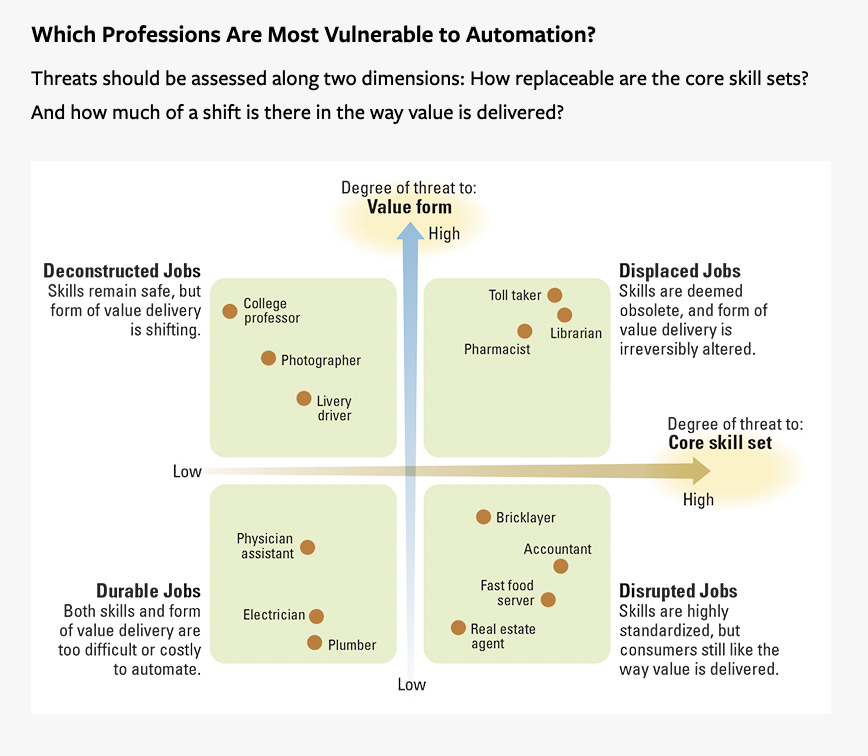
Issue #401 published 16 Jun 2024
The reason why downloadable reports in this newsletter are all hosted on Dropbox is because of this reason - link rot on the Internet is a real phenomenon, as this report from Pew Research confirms. There are implications for sourcing here, as well on employer branding, SEO, AI training data and the rest. We might well end up in a place where AI is trained on data we can no longer independently validate…
Issue #401 published 16 Jun 2024
The techno-optimist view of AI - industry disruption but also more jobs created on aggregate - has generally held sway, mainly for lack of a well articulated opposing view. This article from HBR is a welcome addition to the debate, and it argues that more attention to should placed on the uneven distribution of the benefits of innovation. Rising tide does not lift all boats - it raises some, but lowers others. High level, readable stuff.
Issue #399 published 2 Jun 2024
OpenAI rolled out ChatGPT4o last week, and it’s a blockbuster: multi-media input, real time language translation and a conversational AI that you might actually like to verbal conversation with. As a no-additional cost update for Premium users it’s also an example of market cornering overcapacity. Launch demo video here - worth watching in its entirety. Further note: Co-founder Ilya Sutskever leaves next day, along with several more data scientists from the Superalignment team - this is the group of employees in charge of ensuring human control over AI, mos.t of whom signed a disparagement order tied to equity to prevent leavers from speaking negatively about OpenAI…
Issue #397 published 19 May 2024
Brainfooder John Vlastelica is one of the most compelling figures in our industry - a thinker / do-er who is able to extract profound insight from operational realities, as well as ask stimulating questions such as what happens when everyone is AI-enabled? One possible answer is an inefficient process might become a positive differentiator if high level human touch was the reason for it. In a same way we prefer an artisanal coffee, will hard-to-hire, passive candidates prefer ‘artisanal recruitment’? Intriguing brainfood.
Issue #396 published 12 May 2024
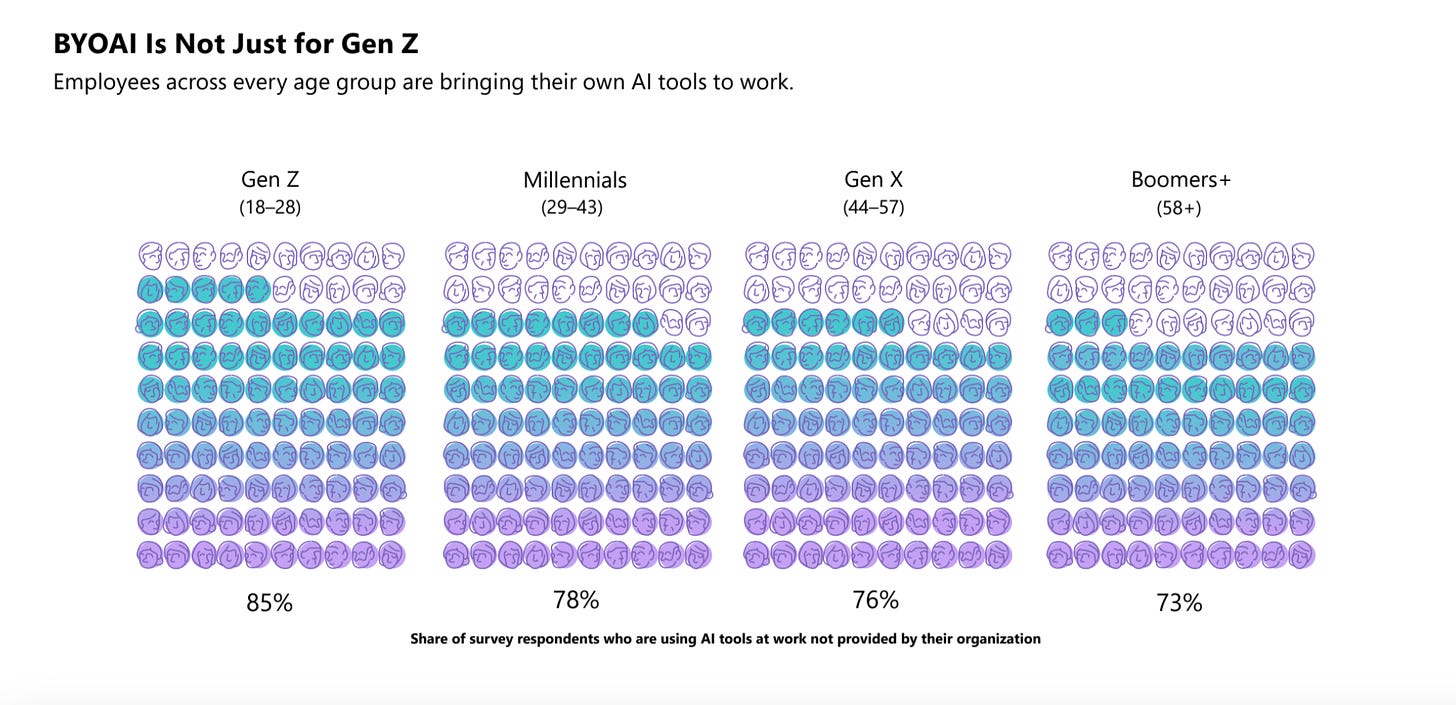
Issue #396 published 12 May 2024
Great to bump into brainfooder Johannes Sundlo in Amsterdam last week, and our brief conversation reminded me to listen to this conversation he recently had with Lars Schmidt - great to hear these two talk about a topic we are all interested in - practical use cases for GenAI in HR.
Issue #395 published 5 May 2024
Important piece of research from last year which is one of the few in-production experiments we have seen on the potential impact of banning innovation. Italy’s short lived ban on ChatGPT in 2022 provides empirical evidence on the negative impact on developer productivity. Not hard to reason why - imagine what would happen to recruiter productivity if LinkedIn were banned - but good to have some research to back it up. Bookmark it.
Issue #395 published 5 May 2024
Would you ride a self driving car? 2024 has already seen Waymo piloted on city streets in the US and now we are seeing these vehicles entering the freeway. Where is the legislation, who is responsible in case of accident? It’s not clear who is in charge here, but the shift to automation everywhere is inevitable
Issue #394 published 28 Apr 2024
So this ends up not being convincing, as well as being quite uncomfortable to see human Reid interacting with his digital twin but it is a sign of things to come. Has anyone trained a digital twin yet? Let me know if you have - love to hear how you’ve been getting on. H/T to brainfooder Jacob Sten Madsen for the share in the online community.
Issue #394 published 28 Apr 2024
Somewhat stilted conversation but packed with high impact trends - oncrease in non-FTE, the erosion of the difference between company vs market and the impact of AI on the design of work. 10 minutes - worth it, so have a watch / listen
Issue #393 published 21 Apr 2024
More great DIY research from Henley Wing Chiu - key highlights of his analysis of the make up for ChatGPT Enterprise customers: adoption rate is low at 5% (though we don’t know what a good number is), private companies more likely to adopt vs public and ChatGPT Enterprise companies hire less AI talent vs non-customers.
Issue #393 published 21 Apr 2024
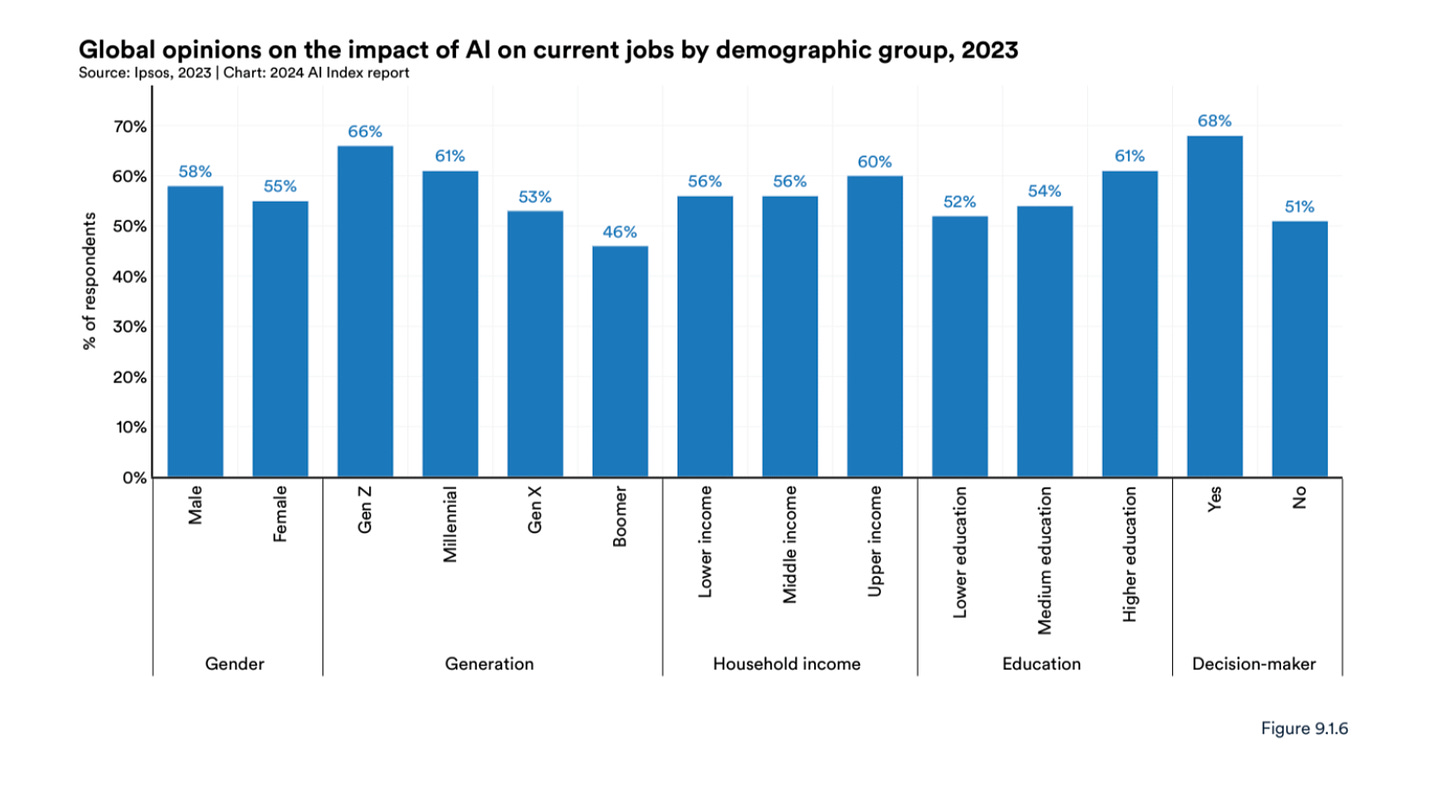
Issue #393 published 21 Apr 2024
Ethan Mollick has been a must follow on Twitter since he began doing summarising academic reports in digestible tweet threads 3 years ago. He has since become one of the foremost experimentors on the use of GenAI, implementing in personal use and also teaching and advocating for its use to his students at Wharton School. Here he is with Azeem Azhar on how to unleash the power of AI.
Issue #390 published 31 Mar 2024

Issue #390 published 31 Mar 2024
With the EU AI Act coming into force earlier this month, makers and users of software which have some AI component will need to be in compliant with the national interpretations of the directive. It has the potential to be an almighty ball ache so pretty handy to have this compliance checker that can at least give you some idea as where you stand in the face of the regulatory power of the EU. H/T to brainfooder Stanislaw Wasowicz for the share in the online community
Issue #389 published 24 Mar 2024
Macropolo produce a fantastic talent tracker on AI - looking at which institutions in which countries produce the talent and then tracking where they end up. No question that the acquisition of elite level AI skills must be considered to be a national priority for any country seriously in the AI game. Useful for recruiters, includes lists of top Universities which have been producing this talent.
Issue #389 published 24 Mar 2024
Tina Huang is a software development coach who has repositioned herself as a future of work analyst. Here she is breaking down to reports on the impact AI will have on jobs from the IMF and the WEF and doing so in easy to watch / easy to listen way. Good way to catch up on these mega reports which likely not many of us have read.
Issue #387 published 10 Mar 2024
Big brained thinking from David Galbraith, maybe one of the most under-the-radar commentators on the impact AI will have the economic, social and political landscape. This essay was written 8 months ago, but I’ve gone back to it time and again because as the AI future unfolds, it is following path laid out here. Excellent analysis on why AI is the true Web 3.0 and why everything is going to change.
Issue #387 published 10 Mar 2024
Jenson Huang, CEO of Nvidia, on why it is important for all only countries to own the production of their own Artificial Intelligence. It’s essential to preservation of your sovereignty. Now apply that to company, and individual level. 25 minutes with one of the architects of this future we are barrelling toward. Must watch.
Issue #384 published 22 Feb 2024
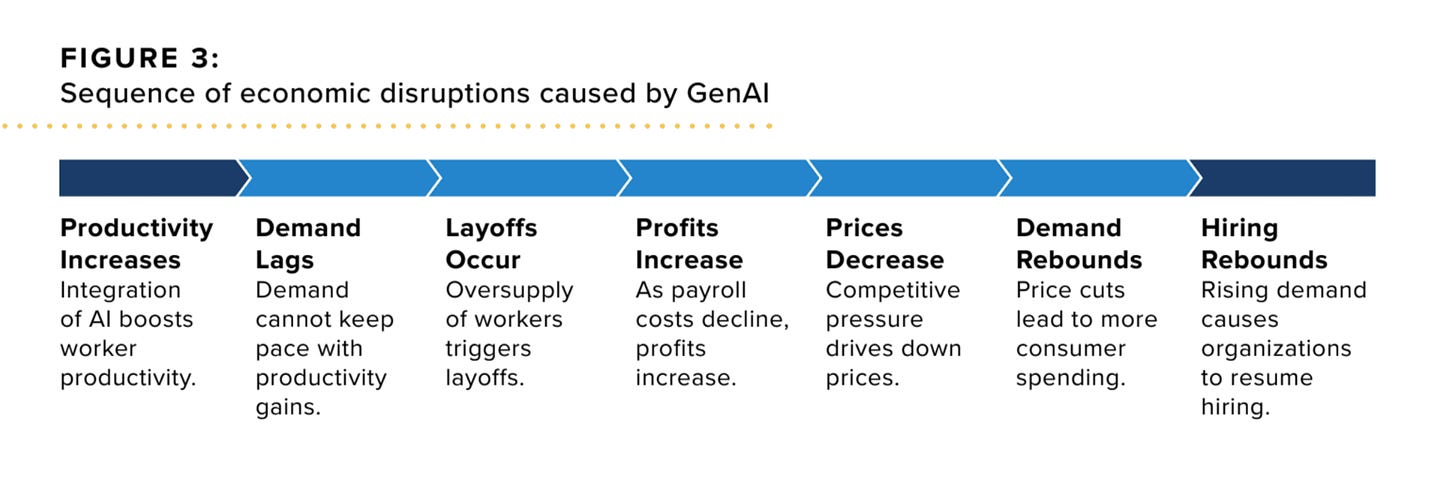
Issue #383 published 11 Feb 2024
Sabine Hossenfelder has one of the best popular science channels on YT, combining crystal clear analysis with wry delivery which includes the lay person viewer. Here she is on a significant advance on Google’s AI, AlphaGeometry. Whilst we’re busy with trivia like improving engagement rates on email outreach, AI’s true value will be in tackling mathematic problems which lead to scientific breakthrough. Scientists to be disintermediated? No reason why not. Have a watch
Issue #382 published 4 Feb 2024
Mesmerising interactive long read on the enormous influence that accrues by becoming the gateway - and gatekeeper - between consumers and producers. Google’s two decade long position as the dominant search engine for the web has meant standardisation of web design, information architecture, coding styles and even programming paradigms, as individualism inevitably makes way for optimisation. I’m including this post not only because it is a fantastic read of the Google era of the Web, but because it also provides guidance on what we might expect in every future battle for platform dominance i.e open vs closed source AI
Issue #381 published 28 Jan 2024
An interesting sample of how job boards are implementing AI into their services around the globe by brainfooder Jeff Dickey-Chasins. AI is washing over the recruitment technology landscape; when the tide goes out, we’re going to be looking at a very different (looking) rectech environment, hopefully one which will be an up levelling of experience for the user. Jeff btw is a must follow member of the community.
Issue #381 published 28 Jan 2024
I’ve been raising the alarm about greater need of awareness of the legislative environment, but perhaps we can just afford to ignore regulations if they are not enforced? This was the unofficial policy of an unnamed-but-very-well-known rectech vendor I had a conversation with last year, and maybe they have a point. Even the simple act of disclosing whether you are using ‘automated employment decision tools’ seems to much for many employers, with only 18 of 400 employers that do use such tools actually publicly disclosing the fact. Laws only exist upon enforcement, I suppose…
Issue #381 published 28 Jan 2024
“Building general intelligence and open sourcing it responsibly” - the significance of this line in Mark Zuckerberg’s 120 second announcement might initially slip your notice, but it is a shocking statement in hindsight, and the de facto announcement of Meta’s entry into race to build Artificial General Intelligence, and do so in a way which enables maximise access to most people. The wisdom of the former is debatable but the commitment to the latter is laudable. Mark, you have my support!
Issue #380 published 21 Jan 2024
This story about a person’s navigation through the Kafka-esque bureaucracy that is the US healthcare system turns out to be a profound discussion on the nature of ‘organisational debt’, the general lack of any system despite the branding that there is a system and the social capital / institutional knowledge required to get the outcome that you need in these circumstances. I categorise this as ‘AI’ because messy reality is inadequately documented and why humans beings working in complex, inefficient organisations might in fact be the most insulated from AI disintermediation as a result. I promise you, this is worth a read.
Issue #380 published 21 Jan 2024
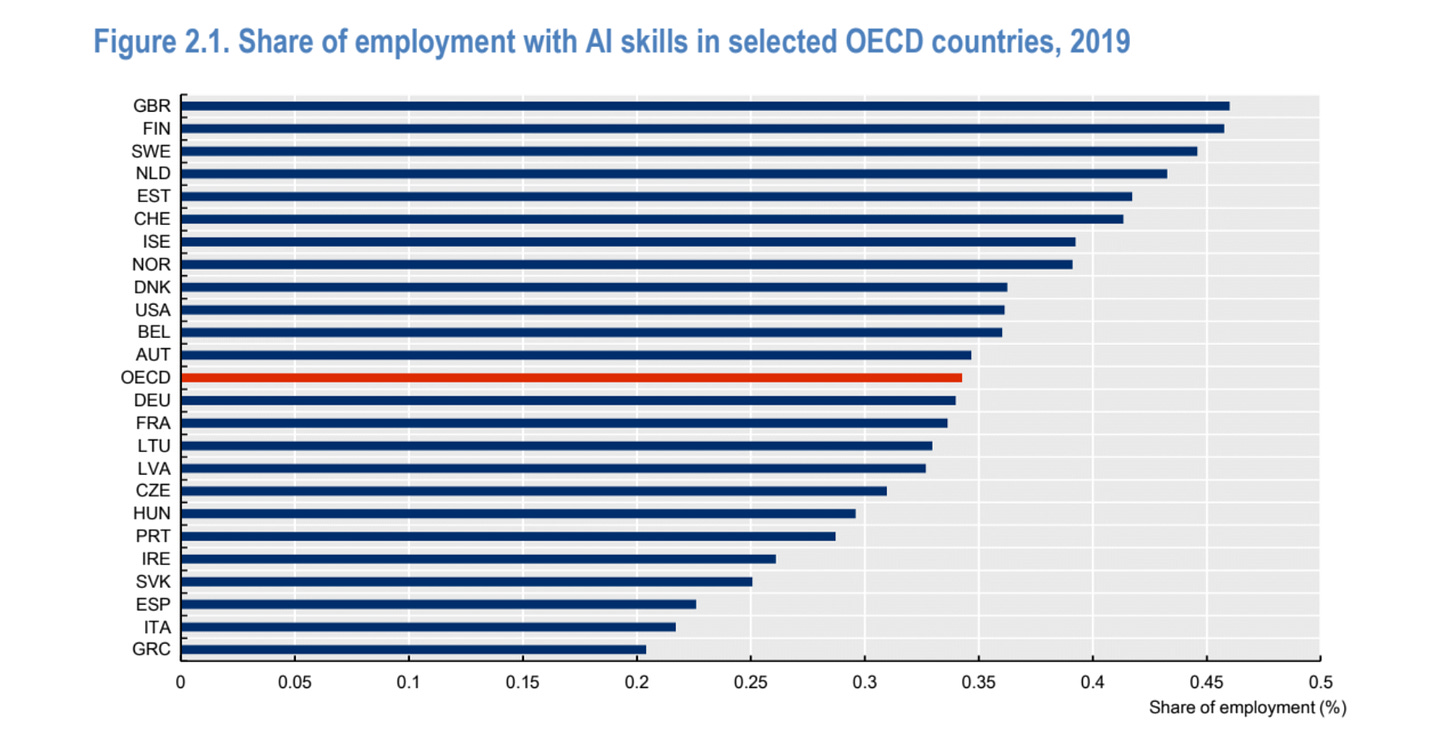
Issue #379 published 14 Jan 2024
This is a great channel which tracks the development of AI, in a way which is accessible to most. List of jobs which are most highly exposed to AI, to such a. degree that they are most likely to be replaced by AI, complete with demo’s. A very well done video
Issue #378 published 7 Jan 2024
The central premise of this astonishing essay from infosec expert David Meissner, is that whilst technology innovation is unpredictable, human beings are not, hence the best way to figure out what is going to happen with AI is by reviewing human motivations. That simple premise turns into a magnus opus which manages to be readable despite being nearly 20,000 words long. Dazzling essay on the future of path of AI, particularly the advent of Digital Assistants who will become the mediating layer between human + (all) services.
Issue #378 published 7 Jan 2024
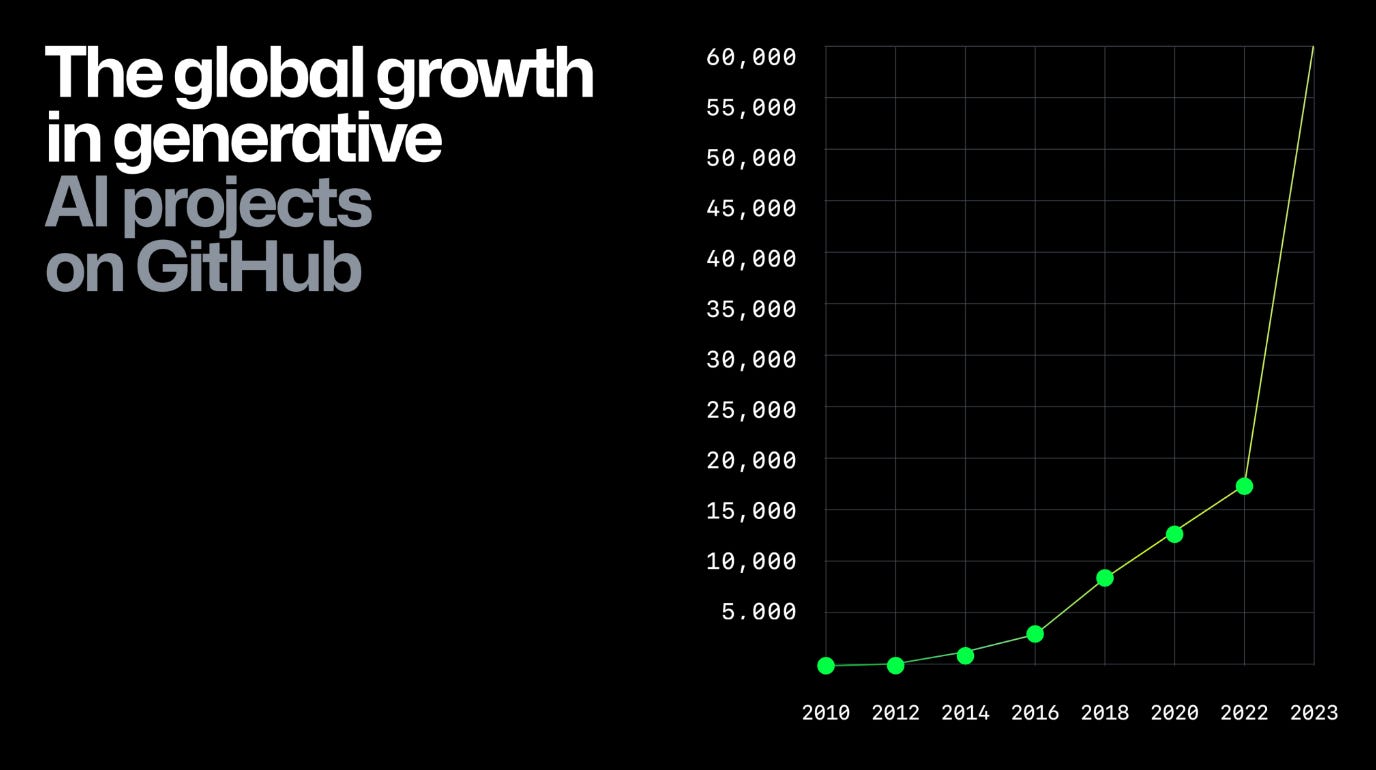
Issue #376 published 24 Dec 2023
This is post is good because it actually gives you a framework on how to take control over the encroachment of AI into your work. Three step process: first, de-compose your job into tasks. Second, determine which of these tasks are most information processing intensive, and how the status of knowledge in those tasks (i.e defined, ambiguous, static, dynamic etc). Third, re-compose the tasks into a job that is least exposed to point No2. 100 critical recruiter skills here, if you want to try this exercise for yourself.
Issue #375 published 17 Dec 2023
Peter Hinsen has long been one of the true thought leaders in the TA / HR space. His interview here with Pascal Coppens on the state of GAI in China turned into an excellent blog post, as well as an enlightening conversation of where AI is in the East. Have a listen.
Issue #374 published 10 Dec 2023
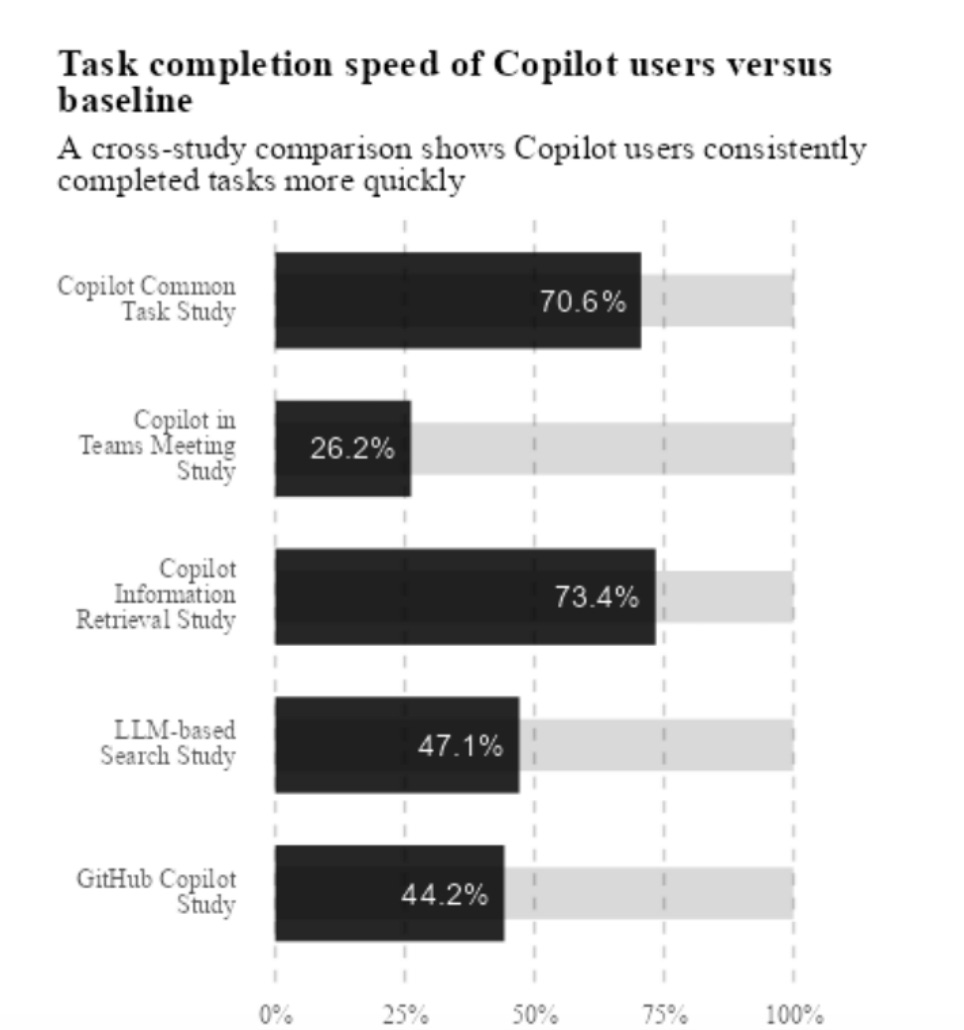
Issue #374 published 10 Dec 2023
Google’s so far underwhelming offering to the GAI space received a massive boost with the release of Gemini, a multi-modal LLM illustrated with a jaw dropping intro video, which seemed to demonstrate the AI’s ability to seamlessly move between input modes, whilst being prompted with voice commands. Of course, none of it was really real, and the ongoing backlash on the video maybe turning a PR triumph into disaster. However, more detail on how it works from DeepMind and Google Developers blog suggest something significant. Google have also thought about the money as well - Gemini will be available in Ultra, Pro and Nano tiers - the future revenue model of the AI enabled internet looks pretty much set.
Issue #374 published 10 Dec 2023
Yeah I know it’s been a bit Microsoft heavy this week, but I think that Copilot is likely to be the way most of us will end up being ‘AI-enabled’ so we might as well absorb as much intelligence about it as we can. This was a recording of an internal talk on the roll out, and covers important stuff like what you need in order to get ‘enterprise ready’Hint: its all aligning your data strategy with your data policy
Issue #372 published 26 Nov 2023
Emmett Shear’s 72 hour stint as Interim CEO of Open AI made me look a little deeper at the thinking of the man, and I stumbled across this one hour lecture on the nature of truth, evidence and AI. He comes across very well, and outlines the epistemological challenge that modern communications and GAI-ed internet presents to our now outmoded ideas of truth and evidence. Must watch.
Issue #372 published 26 Nov 2023
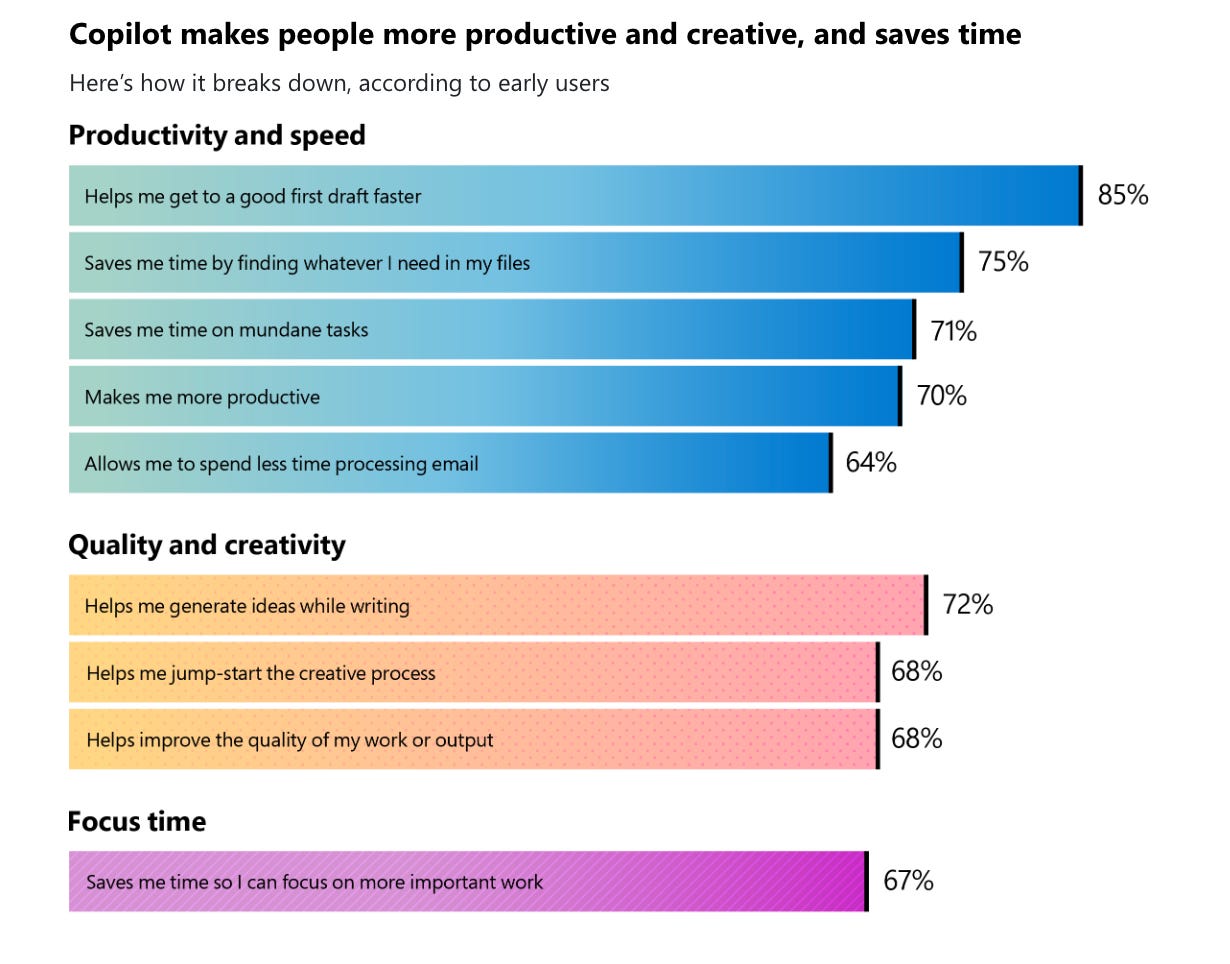
Issue #372 published 26 Nov 2023
Surprised that no one has done this yet - interview ChatGPT on the Future of Hiring - so I was glad to hear this interaction with a text-to-voice version of ChatGPT. To be clear, I think this is the interviewer feeding in ChatGPT’s written out into text-to-voice, which is then spliced into a fascsimile of a live interaction. But it works ok - have a listen. H/T to brainfooder Bas van de Haterd for share
Issue #371 published 19 Nov 2023
1500 ‘tech people’ surveyed on the state of AI ‘in production’ - in actual use, rather than in perpetual experimental demo. It’s a beautifully rendered interactive website with results which I think will resonate with a lot of us here. Dev centric, so a window into how software engineers are using AI, and where they think it will go….
Issue #371 published 19 Nov 2023
Andrew Ng has been one of the best communicators on the topic of artificial intelligence for the past decade, doing it way before it was cool. Always great to listen to what he has to say on the impact of AI, especially on the speed of application development. Technical but accessible, so have a watch here.
Issue #369 published 5 Nov 2023
Nice gif on the evolution of Large Language Models, almost all of which trace dependencies on a previous LLM that went before. Needs speeding up to be honest but it is very nicely done.
Issue #369 published 5 Nov 2023
Always a pleasure to chat with brainfooders Craig Watson and Lauren Sharp, the terrible twosome responsible for Australia’s leading talent podcast, TAPod. I’m afraid its me doing most of the talking here, talking about candidate use of AI. Have a listen here. btw: we’re doing this topic on Brainfood Live - register here.
Issue #368 published 29 Oct 2023
I am including this technical post because I believe a) we recruiters can handle it 🤣 and b) because it provides a just-about accessible outline for one of the most significant innovations that enables a great deal of the magic that comes out of GAI applications. Embeddings, is the conversion of information (text, image, whatever) into a set of coordinates in a hypothetical multi-dimensional space, thereby improving predictive power by proximity and clustering. Not the easiest digest, but give it go
Issue #368 published 29 Oct 2023
Legislation governing how Artificial Intelligence can be used is percolating throughout jurisdictions across the world. As we discussed in Brainfood Live last Friday, nobody is really on top of it, but the clock is ticking for us to understand what the compliance obligations are going to look like. This is one of the most useful looking resources I have seen to date - an updating database of legal cases, organised via core compliance concepts. Must read
Issue #367 published 22 Oct 2023
This is an interesting channel - a guy who is basically investigating how to use AI to automate everything. Wes Roth is a great narrator and his videos are informative, maybe inspirational, maybe conspirational. This one looks at how AGI will actually evolve, and it will come from the UI of a video game. Fascinating hypothesis. H/T to Stanislaw Wasowicz for the share
Issue #366 published 15 Oct 2023
One of the main points of friction slowing down the adoption of AI in work is a lack of policy and guidance from the top. We need more content like this from our friends Metaview, whose how-to guide includes useful checklist that you take an run way today. Also: for those worried about potential AI bias / legal risk, we’re doing a Brainfood Live on this next month - register here.
Issue #364 published 1 Oct 2023
How has the demand for AI impacted compensation? It’s a question which has interested me enough for me to do a custom webinar on it, with our friends at Figures, next month (register here). Some highlights in this short post from Worklife: ‘Head of AI’ tripled in the past 5 years (LinkedIn), 35% increase in job titles with AI in from 2020-2023 (Indeed) and ML Product Manager salary at Netflix ‘up to $900,000’….
Issue #364 published 1 Oct 2023

Issue #364 published 1 Oct 2023
Super interesting review, by BCG themselves, of the same experimented conducted by academics mentioned in article No6 of this newsletter. Of course BCG are motivated reasoners - but hey aren’t we all? - but they do come up with some intriguing findings; again closing gap between low to high proficiency, the loss of diversity of thought (few people dissent from AI output), reduction of group creativity against improvement of individual performance, the negative impact of training in AI on user use of AI (!) and the degrading of AI output on areas it excels at, after human modification. It’s a short post but I promise you, worth reading.
Issue #363 published 24 Sep 2023
One of the things we need to do as an industry is evolve the conversation on AI beyond semantic cliche. This excellent guide on the terminology should help in this regard. Lets put the ‘there is no such thing as AI’ phrase into the dustbin. Have a read.
Issue #362 published 17 Sep 2023
About 15 minutes in, Jon Krohn, host of the SuperDataScience Podcast gives a very good description of what Generative AI is, and how it works - in depth but not excluding to non-experts. Worth a listen.
Issue #361 published 10 Sep 2023
Clarity of thought is one of Josh Bersins strengths and he puts this on full display in this excellent post on how we’re going to be seeing Generative AI in the workplace. Useful for getting the language, the categorisation of applications, as well as important context for why those applications will be in this type of work. You should be following Josh by now, do so if you’re not already.
Issue #361 published 10 Sep 2023
Saw this in brainfooder David Green’s superb monthly compilation and was disappointed I had not picked up on it myself! Ethan Mollick has been a Twitter must follow for his report breakdowns and he’s added to his value by diving in deep into Generative AI. Here he does some live demo’s of GAI to the HR audience - nothing groundbreaking now, but a great intro to the topic, as well as to him. Have a watch.
Issue #360 published 3 Sep 2023
Ben Evans is a must follow - his essays have an erudition which is beyond most commentators of the Internet. He’s analysis of data privacy hysteria - which will augur in the rise of the paywalled Internet - has proved prescient, and I like his analysis here of the relationship between AI and IP. They are in contradiction and Evans wants to create the argument in defence of AI. We probably should support it, because we need to really think long and hard about who gets what value before lawyers end up shaping the society based on case law.
Issue #360 published 3 Sep 2023
Something very interesting is happening in the global AI sector: demand of AI talent remains sky high, but it is not being met by the surplus of graduates entering the market: employers are looking for experienced contributors, ahead of both juniors who need training and hands off management who have left the work behind. Happy are those who have hit that sweet spot. And not a China only problem, either as youth unemployment appearing to be a global phenomena
Issue #357 published 13 Aug 2023
Excoriating post from brainfood Jonathan Duarte, who takes HR vendors to task for overselling the AI-ness of their product, which may be inadvertently expanding the scope of legal scrutiny by government authorities keen to constrain AI. It’s an interesting argument - one which I’ve not yet seen made before - and at first pass, seems to have merit. If all HR Tech becomes AI-enabled, does that mean that they must all be subject to a bias audit? You can imagine the nascent industry of AI auditors clamouring for it to be so…PS: if you want to read what such an AI audit might look like, this study on Influences of AI Personality Scoring is a decent read. H/T to brainfooder Carl-Christoph Fellinger for the share.
Issue #356 published 6 Aug 2023
It’s Reid Hoffman, talking on Clearer Thinking podcast. Hoffman, the founder of LinkedIn, recommends AI accelerationalism as not only the most ethnical position, but also the safest. He makes the conventional argument that AI will shuffle the work, rather than reduce the overall requirement for human work, hopeful speculation which is as wrongheaded as it is flawed. Still worth listening to however, so give it a go here
Issue #354 published 23 Jul 2023
Interviews with C-level at LinkedIn are fascinating, not least because its not clear whether they are intentionally leaking snapshots of future roadmap or just riffing off-the-cuff on what may be possible. I’m altogether unsure whether AI generated LinkedIn profiles are the way to go, but then, what makes human generated ones any better? Challenging implications from this brief interview, going to be the topic of today’s poll and maybe a future topic of Brainfood Live. H/T to brainfooder Donna Svei for the share.
Issue #354 published 23 Jul 2023
Nice post collecting together three early studies on the productivity gains of generative AI; study No1 on the customer support agents has already become canonical, and we would do well to familiarise ourselves with the others also. More of these to come no doubt, as the business case continues to build for the widespread operationalisation of AI in the world of work.
Issue #354 published 23 Jul 2023
The ‘de-aging’ of Harrison Ford in the latest Indiana Jones movie portends a future which is most unwelcome for most other actors, who might find themselves outcompeted for work by immortal AI generated simulacra of existing and maybe even long dead stars. They are striking over it, and rightly so. Power law is beginning to be felt in AI, where the few, most bankable stars, become forever leads capturing the value that might otherwise have gone to the next generation of movie stars who might now never get a chance to be. Fascinating future, or non-future, depending on how you see it.
Issue #353 published 16 Jul 2023
We might have hit a moment of ‘AI fatigue’ of late, with ChatGPT experiencing their first decline in web traffic since it sensationally brought GAI to the mainstream 8 months ago, but the drop in enthusiasm also coincides with one of its most important releases to date. Code Interpreter is essentially a sandboxed Python environment where you can execute Python code to perform any task you like. Built for coders, but as brainfooder Martyn Redstone superbly describes, can be applied to many recruiting activities….
Issue #353 published 16 Jul 2023
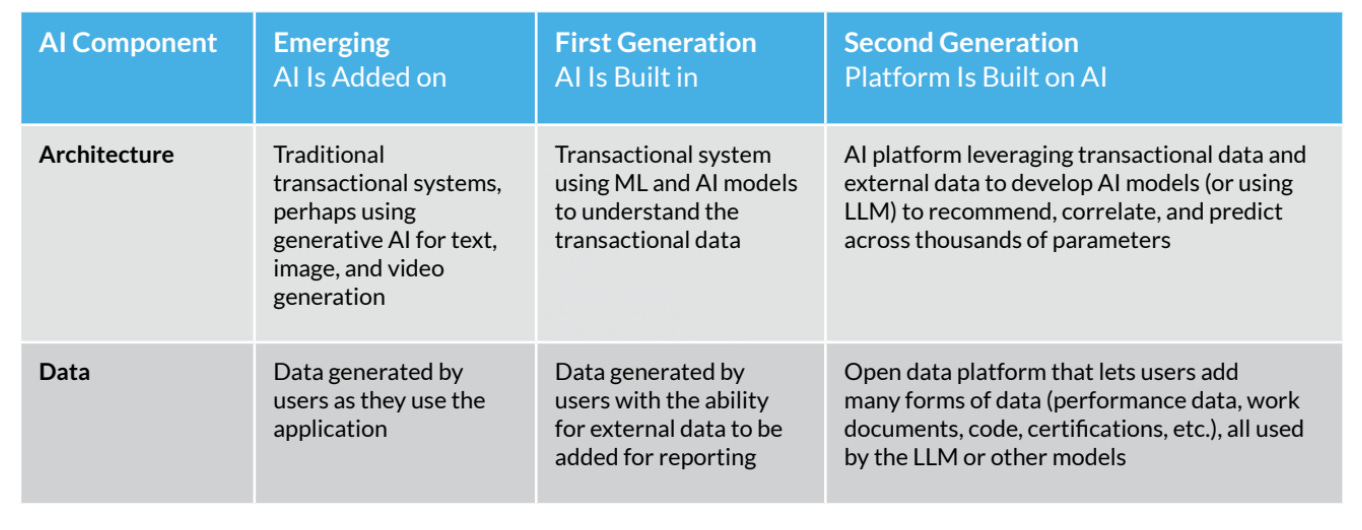
Issue #353 published 16 Jul 2023
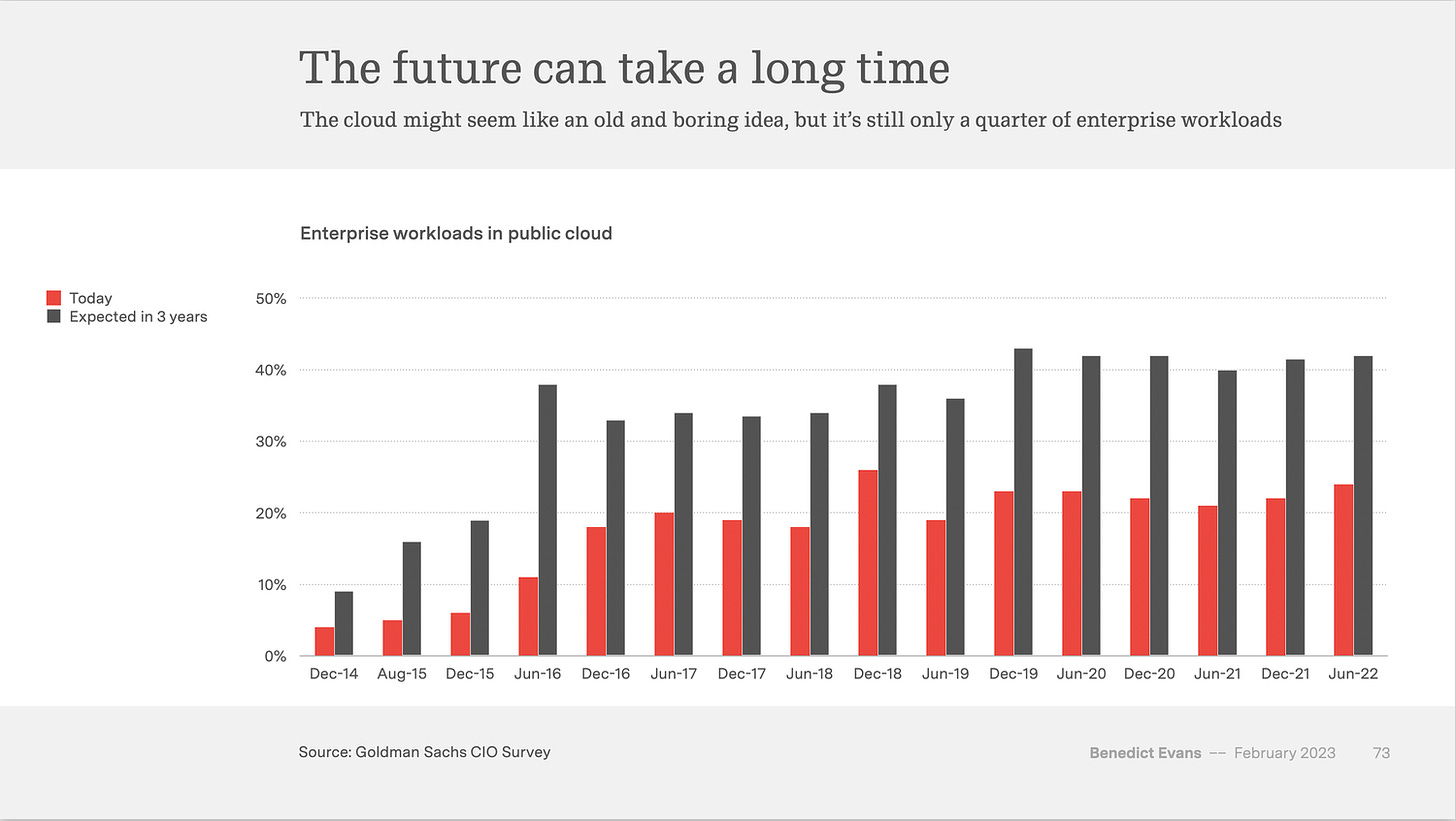
Issue #352 published 9 Jul 2023
Unusual, fun and useful article, comparing how leading thinkers on AI measure up on the big questions animating the debate, specifically, is AI an existential threat to humanity. As we use the tools these people build, this article might be worth referring back to. It’s also a very good way of understanding the contours of arguments which might otherwise be impenetrable to us lay people. Good read, great brainfood
Issue #351 published 2 Jul 2023
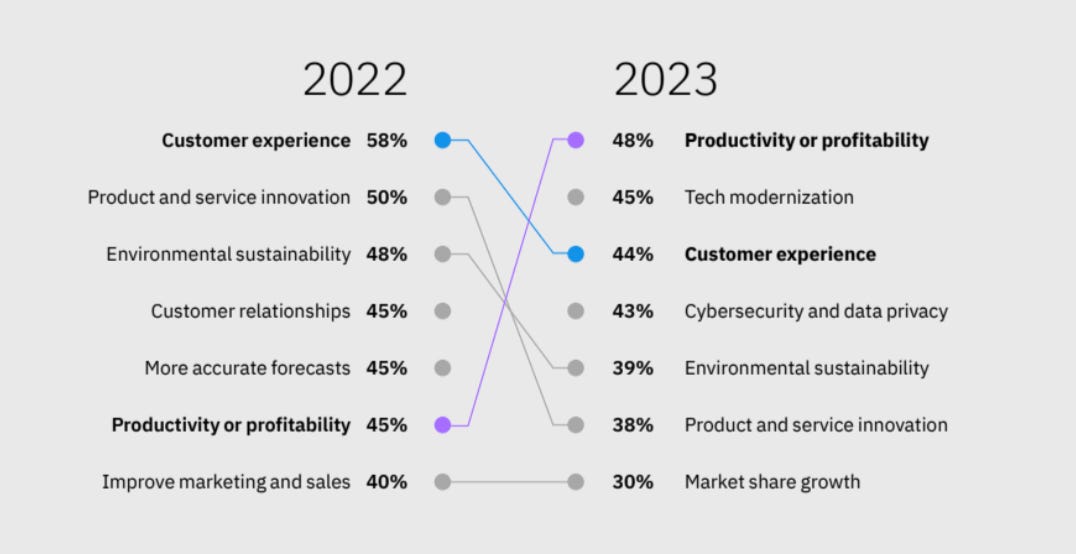
Issue #351 published 2 Jul 2023
One of the best explainer YouTube channels for complicated topics, which manages to go into depth whilst respectfully hand holding the novice all the way there. Densely packed 13 minutes which will make sure smarter about AI, especially on how advanced users are subverting the explicit guardrails on GPT’s. Have a watch / listen.
Issue #350 published 25 Jun 2023
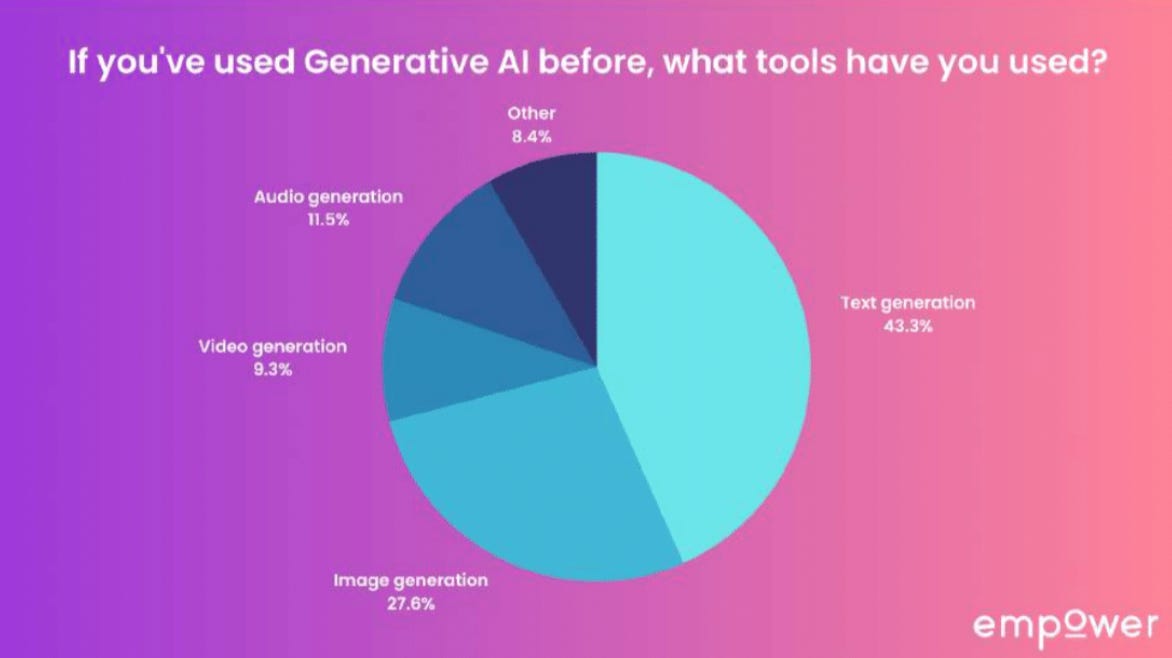
Issue #350 published 25 Jun 2023

Issue #350 published 25 Jun 2023
Josh Bersin previews his keynote in a 20 minute monologue, introducing his new term ‘Organisational Ingenuity’. Always worth a listen (and read, the short essay on the blog is also excellent) on the impact of AI to super human productivity. Contrast this though with No9 in this newsletter though - unasked question is, must AI inevitably be in service of capital?
Issue #349 published 18 Jun 2023
Apparently this huge chunk of change is going to translate into increasing the Data & AI division to 80,000 consultants, each one of whom will become an active vector for the spread of AI enablement into the corporate world. If we don’t get busy becoming AI-enabled, these friendly guys are going to do it for you.
Issue #349 published 18 Jun 2023
So Adobe launched their killer update to Photoshop and it has caused a sensation amongst graphic design community. This TikTok is an example of a new genre of graphic designers reactions to Photoshop Generative AI. It’s humourous and portentous. Technological innovation can be described as a process of deskilling and these videos show you why. PS industries don’t die immediately though, as this research from Stock Performer attempts to show
Issue #348 published 11 Jun 2023
Do I read that right? 9.9 billion visits to Openai.com, presumably the vast majority to the breakthrough app of the year, ChatGPT. Useful and beautifully presented website, ranking the 3000 most visited AI websites. Also included a ‘just listed’ tab, as well as browse & filter options. You’ll find something useful in here.
Issue #347 published 4 Jun 2023
Technical talk by OpenAI’s Andrej Karpathy, which is nevertheless accessible enough for the lay audience. Especially good on what happens on the pre-training phase, as well as a guided tour on the history of the GPT’s (2,3,4 etc). Give it a go people.
Issue #346 published 28 May 2023
Swap out ‘CEO’ for ‘Talent Acquisition / HR Leader’ and this article will land equally well; its an excellent primer for those who want to contextualise the rise of Generative AI with a time line, use cases and a very nice interactive table on the projected downstream impact of the implementation of GAI. If you haven’t yet found the time to get up to speed yet, this is as good starter post as you might find.
Issue #346 published 28 May 2023
Is it about time to hear from some pro-human thinkers when it comes to AI? Seeing as we’ve been hammering journalism this week, lets hear from the founding editor of Wired magazine, Kevin Kelly. He doesn’t convince me, but maybe he will you?
Issue #345 published 21 May 2023
Saving the best til last, this is one of the most readable, and insightful posts on the astonishingly pace of innovation on generative AI. Steve Yegge is a legendary computer programmer whose writing has the unique quality of including the lay person, whilst making no compromise at all to their (our) relative lack of tech literacy. This is on the accelerating cycle of innovation in AI, why no one can control it, why we should be excited, and why of course we are right to be worried. Must read.
Issue #345 published 21 May 2023
Brilliant demonstration of the power of hooking apps together, now supercharged by AI which can understand and accept natural language. Brainfooder Euan Cameron shows us how to automate personalised replies to job advert response, whilst setting off triggers to hiring managers based on candidate behaviour. It’s a 5 minutes work replacing what might’ve previously taken 10 hours. Game is changing, we had better change with it. Have a watch.
Issue #345 published 21 May 2023
This is something new for you - my chat with brainfooder Siadhal Magos, CEO of Metaview on AI in recruiting, using Metaview’s AI transcription, summarisation and question features. I hope this was a good conversation on the topic, but also I think a demonstration of the future of podcasting. Need a Metaview account to view - check it out
Issue #344 published 14 May 2023
The cost of cognition will drop precipitously with the rise of generative AI
It’s fun to listen to AI people who have knew the world prior to the Internet 1.0 - they speak of this moment in the same terms as the browser or the hyperlink. The speakers are right, individual productivity will lead organisational enablement. Great listen.
Issue #344 published 14 May 2023
Great explainer video of an interesting internal document purportedly leaked from Google R&D, where the anonymous author claims that Google has no viable defence against open source innovation in AI - and neither to do OpenAI, which contrary to their name, are far from open. The document is readable in of itself, but this video will help those who prefer to listen rather than read. The upshot is this though, AI is out in the wild and it’s distributed innovation of solo devs who will win.
Issue #343 published 7 May 2023
There is no industry sector which is under more pressure from GAI than education so refreshing to hear from one of the leading entrepreneurs of the space lean into it and come up with a optimistic view of how AI can transform learning in a positive way. GAI is going to spawn a whole new generation of great TED talks - this one is going to be one of them.
Issue #343 published 7 May 2023
So this workshop with brainfooder Jane Moors and her Outerbox Thinking cohort turned out to be an hour long monologue by me on Generative AI and the future of recruitment. It’s just me so might be difficult to watch / listen to but having heard it back I think it does fairly reflect on what I think about the moment right now. Have a watch / listen and let me know what you think.
Issue #343 published 7 May 2023
Ethan Mollick on ‘prompt engineering’, which he doesn’t really believe is much of a skill; after all, you can ask ChatGPT itself on how to ask better prompts. There are valuable shortcuts though, so reading this post will speed up your learning curve, but as Ethan says, it’s mostly about practice.
Issue #343 published 7 May 2023
Interesting panel discussion which does take a little while to get going, but once we’re into the debate, there are some valuable framing there which will help us think about where we are at with AI. It’s probably all moot though, GAI is like Covid-19 - once it’s out in the wild, it’s out in the wild and no one is in control. Have a listen. H/T to brainfooder Bas van de Haterd for the share
Issue #342 published 30 Apr 2023
5000 customer support agents were measured by the number of closed tickets per hour. AI increased productivity across the board but intriguingly helped those least skilled the most, to the extent that AI-assisted workers operated within 2 months to the standard of non-AI assisted at 6 months. Positive implications for onboarding, though as with everything AI, not without concern. What happens when AI becomes the great equaliser for job performance? Will it reduce motivation to become highly skilled? It should. This will probably become one of the most cited papers on AI impact on worker productivity, so you had better download it here.
Issue #342 published 30 Apr 2023
It’s always interesting exercise to dive into non-recruiting communities to see how they are discussing topics which are important to us. Here we have BBC’s Women’s Hour, discussing latest trends including threat of AI to work, and in particular, the jobs in which women currently dominate. Interesting on multiple levels.
Issue #340 published 16 Apr 2023
Super useful conversation between brainfooders Madeline Laurano, Kyle Lagunas and Tim Sackett on the recent wave of AI tech announcements from HR Tech vendors rerouting their product roadmaps in the advent of GAI. We need updates like this, have a watch. Also a great companion piece to the Bersin monologue above
Issue #340 published 16 Apr 2023
Josh Bersin’s summary of 20 conversations he’s had with HR Tech vendors on the impact of AI in their product roadmaps. In case you didn’t notice, it’s all change, with intelligent, conversational interfaces resetting the board on what good looks like for the HR tech consumer. Bersin’s a greater synthesiser and a superb to-the-camera communicator - have a watch.
Issue #340 published 16 Apr 2023
Artists were amongst the first to warn of the potential for labour market disruption presented by the adoption of GAI. Turns out, it was for good reason, because they are indeed amongst the first category of workers to be disrupted. Drawing and animating used to take time and skill, yet now comparable output can be achieved with neither. And for those artists who are adapting to the new world? The work is far from satisfying.
Issue #340 published 16 Apr 2023
You can’t keep up, I can’t keep up, no one can keep up. Just when we have got over the initial shock of how good ChatGPT is, we already see the next generation - AutoGPT. This software has access the the Internet and can perform actions for you based on your prompts, meaning that it connects generated information (marketing) with retrieved information (sourcing). It’s another huge milestone in the reinvention of knowledge work. Must read thread folks.
Issue #340 published 16 Apr 2023
Is AI running out of control? The presenters in this talk certainly think so, and though they have no great prescription, they rightly want to elevate the conversation and outline the contours of concern in the building of AI. Inadvertently, they end up endorsing a centralised control of AI development, which jars with the values which opened up in the innovation in the first place. I think the brainfood community has it right (see poll result above) but we may not actually have a viable brake. H/T to Jacob Sten Madsen for the share
Issue #339 published 9 Apr 2023
Essential report from Stanford University (in collaboration with Open AI and Google amongst others), on the state of artificial intelligence, covering investment, policy, labour market, technological innovation, public sentiment and more. The innovation rate in the field is moving so fast at the application level that it can be overwhelming to the senses; this comprehensive and accessible report is a great load balancer for us. Must read or download here. H/T brainfooder Martyn Redstone for the share in the online community.
Issue #339 published 9 Apr 2023
Adam Grant is discombobulated by ChatGPT. It’s not often he’s the dumbest person in the conversation but he is here. The patient explainers by his interlocutors Allie Miller and Ethan Mollick operate as great explainers for us on how ChatGPT and GAI works and when it doesn’t. H/T to brainfooder Sean Wilkes for the share in the online community.
Issue #338 published 2 Apr 2023
Well he is the man of the moment so we had better listen to what he has to say. Not Fridman’s best interview as he struggles to navigate the distance between personal interest vs professional interviewer, but long enough for us to get a gauge as to how Altman sees the world and how he intends to move forward with Open AI. And going forward is what he’s going to.
Issue #338 published 2 Apr 2023
One understated reason why AI will replace jobs is executive demand. You don’t run a profit making business in a capitalist economic system without profit maximisation being your north star on how to operate. And the fact is, GAI can already outperform humans in many tasks, whilst doing ‘good enough’ on others to make a compelling case for managers to argue to bring this in. Note: this includes us in TA / HR. Nice piece of research from Beautiful.ai (an AI presentational builder..) - on the attitude to AI from 3,000 US managers.
Issue #338 published 2 Apr 2023
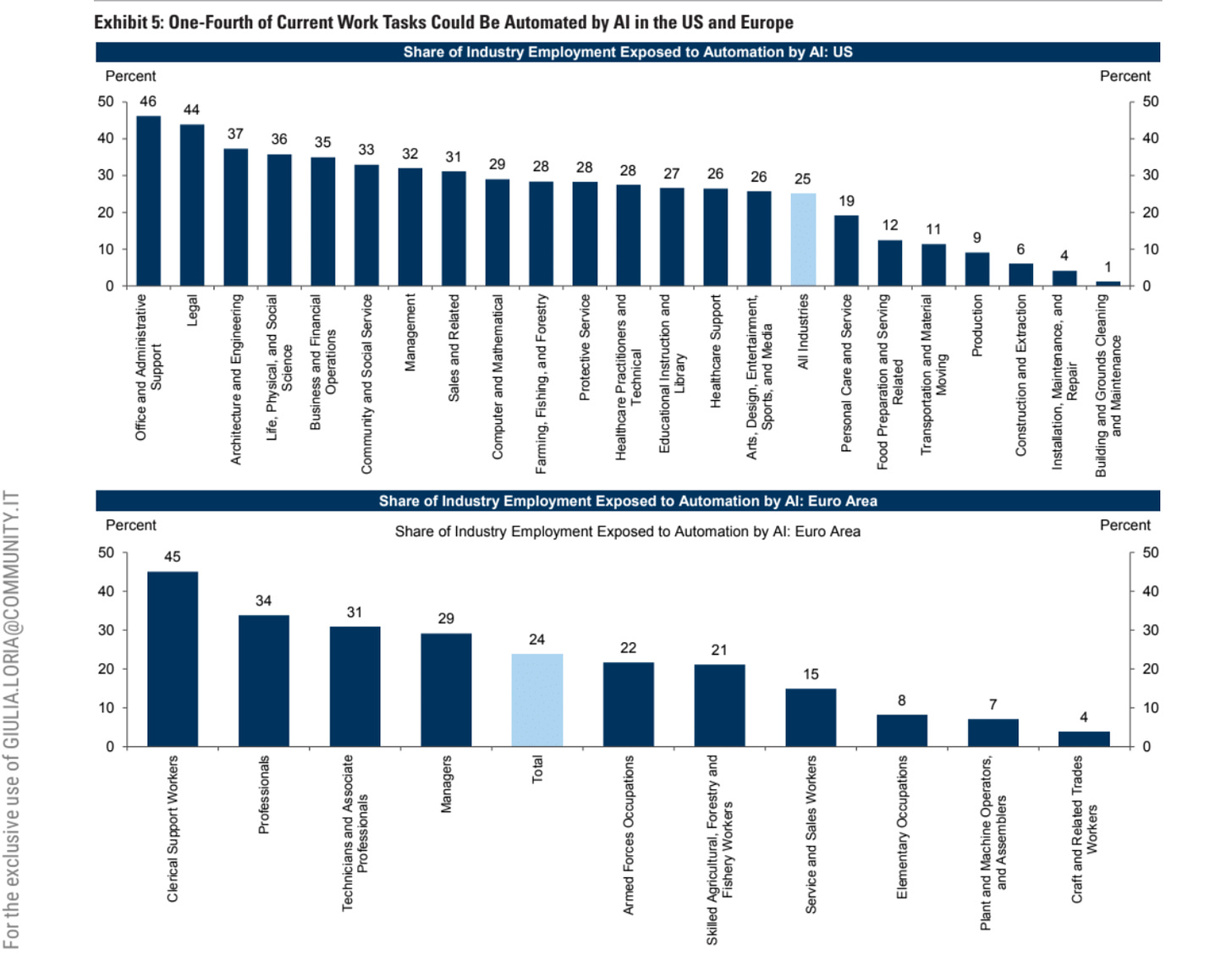
Issue #338 published 2 Apr 2023
The release of Microsoft 365 Copilot - essentially the integration of ChatGPT with Office suite of products - is going to be the superspreader event for AI. Microsoft showcase video from a week ago, which is worth viewing in full to better understand how the world of work is going to change when they do it. Important one to watch in full.
Issue #337 published 26 Mar 2023
Sam Altman, CEO of Open AI, is the man of the moment so it is worth paying attention to what he is going to say. ‘Make the mistakes, when the stakes are low’ is a key phrase Altman used and gives us some idea as to why the product shipping rate has been so fast so far - he’s testing in production in folks and fixing what he can as he goes…
Issue #337 published 26 Mar 2023
Bottom line findings of this academic paper (incidentally co-authored by ChatGPT…) are intriguingly counterintuitive - those jobs with the highest barrier to entry (doctors, lawyers, accountants etc), are most directly exposed to GAI. The real risk to recruiters then is not that ‘AI will replace us’ but that ‘AI will replace a lot of the people we currently recruit, and therefore indirectly, us’. I suspect this paper will be widely cited in conversations on the future of the work, so download, read, critique and bookmark it. H/T brainfooder Matt Bradburn for the share.
Issue #337 published 26 Mar 2023
There probably has not been a more consistent or accurate forecaster of change than the legend that is brainfooder Kevin Wheeler. Here he is with Matt Alder talking about the impact of generative AI and this will change the recruitment industry. We have to get into it folks, today. Listen here
Issue #336 published 19 Mar 2023
The astonishing capabilities of ChatGPT4 combines with human ingenuity to produce this fascinating experiment. Tweeter Jackson Greathouse Fall gives the AI $100 budget and tasks it to make as much money as possible, with him agreeing to submit to the AI instructions. Amazing interactions ensue and…. a practical revenue generating business seems to emerge. We have a short arbitrage window where money can still be made by those who know against those who don’t. H/T to brainfooder Adam Gordon for the share in the online community.
Issue #336 published 19 Mar 2023
If you’re not tired of my chat, you will have a chance to exhaust your patience with one more - this time with brainfooder Robin Choy, who hosts an excellent interview podcast series. We narrow focus in our Generative AI in this conversation, talk about its use and ab-use cases and make recommendations for recruiters who have yet to give it a go. Have a listen
Issue #335 published 12 Mar 2023
Another provocation which quickly begins to make sense when we think about it. After all, what does a CEO do other than synthesising information and making decisions based on risk vs reward? Seems like something which could indeed be automated which this cheeky post makes more than a decent case for the idea. Seems like at least one company has done it, and nearly a year in, NetDragon Websoft tis outperforming the market with it’s AI CEO. Heretical yet intriguing read.
Issue #335 published 12 Mar 2023
Unusual post which lists a number of jobs which are in the ChatGPT firing line, tests a typical job function with a sample ChatGPT prompt and then provides a verdict on how screwed you are based on the outputs 🤣. Thankfully, it also provides some recommendations on how to avoid ‘tech disintermediation’ - most usually by moving up with empathy value chain. Good read (spoiler alert: recruiters are in the list)
Issue #335 published 12 Mar 2023
Real pleasure to be invited back on Tapod with brainfooders Craig Watson and Lauren Sharp to talk about what everyone else is talking about, ChatGPT. It’s a wide ranging one folks - we talk about usage, ethics and portends for the future of the web and the future of work. Really enjoyed this conversation - I think it does a fair job of presenting what I think about Generative AI. Have a listen
Issue #334 published 5 Mar 2023
This conversation takes a while to get there but it once we get into the ethics, Sherin Mathew does indeed deliver some important insight. Unanswered philosophical questions which have long remained academic puzzles, become urgent topics of debate now that AI has gone mainstream. Skip 10 minutes, but listen to the rest of this. H/T to brainfooder Jacob Sten Madsen for share
Issue #332 published 19 Feb 2023
With Google, Microsoft and a veritable tidal wave of OpenAI powered tech tools, is it crazy to start thinking of ChatGPT as the venerable incumbent? Its hit its first big problem, by refusing to give straight answers to politically and socially sensitive questions. The tension between ‘making a product safe’ vs ‘making a product just a product’ is a war which is being fought on Reddit (where else), where the jailbreakers have figured out a way to get ChatGPT to ‘Do Anything Now’. We live in interesting times.
Issue #331 published 12 Feb 2023
Great to see brainfooder Kyle Lagunas do more on podcasts - there are few who have the intimacy with the discipline and the breadth of knowledge over the market. Here he is on the Recruiting Future podcast, closing fast on Ep500. Great conversation for an important overview on AI in TA
Issue #330 published 5 Feb 2023
Is anyone here calling themselves a ‘Prompt Engineer’ yet? The take up and enthusiasm behind ChatGPT has been such that communities are already sprouting up around the core interest of getting better at prompting the AI. I’m on the record as saying we recruiters need to get good at this, so check out this community here and join it. AI will not replace recruiters, but recruiters with AI will likely replace those without. And oh yeah, you can now watch AI Generated Seinfeld 24/7 if you really feel like it
Issue #330 published 5 Feb 2023
Sam Altman, the CEO of Open.AI, the company behind ChatGPT, in an interview two parter with StrictlyVC. These are the most substantive recent interviews with him and - he actually gives answers to questions without the caveats we’re now used to seeing in ChatGPT. Important interviews
Issue #329 published 29 Jan 2023
The ChatGPT roller coaster is still gathering pace, and I’m pretty sure no one is entirely on top of it. We’ll do our best to recap what’s happened in the past 4 weeks, with Recruiter Use Cases for ChatGPT, part 2! in Feb 10th - already 400+ registered, so it looks like another blockbuster turnout on the cards. Register here to save your seat. In the meantime, this cheat sheet not only looks pretty useful, but contains enough technical know-how to also be educational on how this damn thing actually works. Shared already in the brainfood online community, but worth sharing again here, as it’s that good.
Issue #329 published 29 Jan 2023
Record breaking Brainfood Live last Friday - 1000+ on the Crowdcast, dozen amazing guests from practitioner, software engineer and tech C-level - on how recruiters are using ChatGPT. I’m sharing this not only for the conversation but also for the chatstream, there must be dozens of useful links shared there, as well as hundreds of connection requests for anyone looking to boost LinkedIn network reach. Click here, get to it
Issue #328 published 22 Jan 2023
I missed this overview from McKinsey late last year, so I’m including it in this week’s issue in order to get it scraped into the larder. The research is a survey work from McKinsey customers on how and whether they have implemented AI into their organisations, includes data on types of categories of tech, common uses cases, types of talent being hired and where we are with DEIB in AI. Important read for an overview of where ‘we’ currently might be, bearing in the mind that the sample is from McKinsey customers, so presumably amongst the most well capitalised firms around. If you want some future forecasting on what happens next with AI, then this thread is a great complementary read
Issue #327 published 15 Jan 2023
This post provides not useful prompt examples, but lays the groundwork on what GAI is, and in particular how Large Language Models are used to train rather than programme applications like ChatGPT. Excellent post for beginner and advanced user alike, as well as something which looks like it is going to be continually updated.
Issue #327 published 15 Jan 2023
Which may be one of the reasons why ChatGPT has Google running scared, especially if Microsoft begin integrating GAI into Bing. Microsoft’s $1 Billion investment in Open Ai in 2019 might prove to be one of the wisest investments ever made. Hacker News comment thread on the topic is superb, covering most of the ethical and practical bases on the use of ChatGPT for ‘search’.
Issue #326 published 8 Jan 2023
Despite the fact that ChatGPT was released only in November, it quickly become the breakthrough technology as users worldwide dived into to experience the almost magical responses it often gave to our prompts. You can also ask it to do fun / scary experiments like this, predicting the future of humanity. It’s a full of problems, but hey, anything for an interesting life eh? Brainfood Live on ChatGPT for recruiters is on the 20th Jan, this will be oversubscribed so register here, and Irina Shamaeva, has set up ChatGPT for Recruiters Group on Facebook, which I am co-moderating - apply to join here.
Issue #325 published 1 Jan 2023
I’m pretty certain that everyone has been playing with ChatGPT by now. If you haven’t yet, you really need to get started. We’re beginning to understand that that effective prompts are the way to get the best out of this AI, so pretty handy to have a list of them in one place which we can all freely browse and use. Bookmark this one folks, we can customise the examples laid down here for more domain specific purpose.
Issue #323 published 18 Dec 2022
Who Owns AI?
AI
It took ChatGPT all of 5 days to hit 1 million + users, and I suspect that it will be many millions by the time you read this newsletter. It’s a game changer for search, coding, communication, content - the possibilities seem endless. If you haven’t tried it, you really should. But as GAI begins to eat the world, questions are being asked such as, who actually owns the training data? Important question asked in this excellent post in The Verge, for which there really are no good answers.
Issue #322 published 11 Dec 2022
After experimenting with it for a few days over this week, I think the right answer is ‘not entirely but…’. ChatGPT is an astonishing experience - akin to how I felt when I used the Internet for the first time saw the miracle of information being retrieved from another computer and yet somehow displayed on my screen however many miles away. With ChatGPT, we now have the ability to generate information trained on information we no longer need to retrieve and manually parse. It has profound implications for our online behaviour, including many activities related to recruiting work, from candidate identification, employer branding, lead generation and the rest. Some output examples collected here, and I recorded a short loom demo for those of us who want to see it in action here. Recommend you give it a go folks, and have a think about how this might be applied to your work.
Issue #321 published 4 Dec 2022
Generative AI has broken through into mainstream consciousness. We recruiters need to be at the very leading edge of adoption curve. Think about the work we do - searching, copy writing, marketing, engaging - all of these essential elements of recruiting work now have AI tools to support and scale our work. Getting good at this will make individual recruiters quantitative better, so this searchable directory of AI tools should come in handy for us. H/T to brainfooder Stanislaw Wasowicz for the share in the fb group.
Issue #320 published 27 Nov 2022
Two of my favourite people in conversation on the Creator Economy, each a pioneer in their own way of making side lines into main lines. Karen X Cheng is a genius videographer whose amazingly production skills make her an Instagram sensation whilst, Steph Smith was one of the first to really understand how content + community came together to be the same thing. It’s a great conversation.
Issue #319 published 20 Nov 2022
The opposite of destruction is creation and few things have been exciting this year than the breakthrough of killer apps in Generative AI. This excellent post from Sequoia is a short history of GAI - a great introductory read for those who are new to the subject. My recommendation is that we recruiters all need to get good with GAI - it’s a going to be differentiator for anyone who creates or communicates - and recruiters who get good at this, are going to be highly sort after regardless of macro economic conditions.
Issue #319 published 20 Nov 2022
'AI is Coming for Creativity' - we need to get used to the term because I think we'll be hearing a lot more about it in the coming months ahead. This is simple twitter thread introducing a number of tools which we need to be aware of - an interesting sojourn for anyone into futurism and also most immediately relevant to anyone involved recruitment and / or content marketing.
Issue #317 published 17 Nov 2022
Don’t you just love hyperbole? I do, especially when it is true. GitHub were one of the first to use open source data to train a commercial AI, and it is one of the first to be subject to copyright infringement litigation from software engineers who claim ‘their code’ is being used without permission for commercial purpose. Even though the engineers are right and GitHub needs to find a way to share the value, I agree with the premise and hope they lose. Love to hear your thoughts on this - who owns the data, who captures the value - maybe one to talk about in Brainfood Chat (download the SubStack app)
Issue #318 published 17 Nov 2022
Remember driverless cars? Big tech has generally pulled back from the maximalist position on this (we might sooner get pilotless air taxis than those on the road) but there remain some interesting developments in the space, especially in China. Great interview here from MIT with a Liu Yang - a ‘safety operator’ who sits in the drivers seat but doesn’t drive the vehicle; particularly interesting are Liu’s reflections on how his job has impacted his behaviour when driving his own car, with the subconscious already offloading to an AI which might not be there. Accidents from ‘over automation’ is something we need to think about…..
Issue #318 published 17 Nov 2022

Is ‘AI coming for creativity’? This interesting experiment puts it to the test by commissioning both a human gig worker and AI generator on a basic design job. Some hope for us humans, as the gig worker on Fiverr comprehensively trounced the AI competition.
Issue #316 published 17 Nov 2022

Is ‘AI coming for creativity’? This interesting experiment puts it to the test by commissioning both a human gig worker and AI generator on a basic design job. Some hope for us humans, as the gig worker on Fiverr comprehensively trounced the AI competition.
Issue #None published 30 Oct 2022

The previous two posts in this newsletter were all about the amazing output we are seeing from AI; this article is a necessary counterbalance, detailing all the exploited human labour that has likely gone into it. Must read folks. btw: Noema Magazine is one of the most consistently thought provoking publications around - it’s twitter this well worth a follow.
Issue #315 published 23 Oct 2022

Ever since I read Douglas Adams HitchHiker’s Guide to the Galaxy as a kid, the Babel fish became something of a milestone for me as a marker of scientific progress - will we ever be able to do real time translations between two beings who don’t speak the other’s language? It looks like we are very nearly there.
Issue #315 published 23 Oct 2022

Artificial Intelligence was always going to change the world, but it takes stunts like this to really bring it home to us normal folk. An AI trained on Joe Rogan, interviews an AI trained on Steve Jobs. It’s an incredible listen.
Issue #314 published 16 Oct 2022

The State of AI Report has become something of annual must read, a massive piece of work which is a credit to its authors, Nathan Benaich and Ian Hogarth. The informational density of the slides is tough reading but set aside an hour and plough through and you’ll have a much better grasp as to the AI landscape going into 2023. Read it here, download the pdf here
Issue #314 published 16 Oct 2022

Hot the heels of last week’s article on movie stars resurrected at AI, this week dive deeper into the idea of ‘digital humans’ and how they can take on the roles previously occupied by humans. There are now ‘AI influencers’ who collected millions of followers, all without the drama of a real diva, existing stars who are thinking about digital immortality after biological death, and an even digital twinning doing the work of customer / fan service. Maybe time for RoboHung to make a comeback? 🤣 Future is already here folks. H/T to brainfooder Bas van de Haterd for the share
Issue #313 published 9 Oct 2022

17 minutes with Andrew Ng is 17 minutes well spent. One of the leading thinkers on artificial intelligence, Ng is also a great demystifier of AI. Accessible examples of how AI can be applied. Have a watch
Issue #313 published 9 Oct 2022

For example, job seekers who can prove that an AI system for screening résumés discriminated against them can ask a court to force the AI company to grant them access to information about the system so they can identify those responsible and find out what went wrong. Armed with this information, they can sue.
Issue #313 published 9 Oct 2022

Trung Phan (follow on Twitter) is some kind of satirical genius; his critiques of LinkedIn are hilariously true; his experiment here is along the same vein. Look at the most common terms of 100 million Linkedin profiles and you will indeed be humbled and honoured.
Issue #311 published 25 Sep 2022

The answer is both yes and no depending what you believe is true in this superb piece of self referential artwork, a video which explains that yes it was made by AI but not it was made by humans pretending to be AI…..🤣. I think we are already at the point where we cannot reliably know.
Issue #307 published 28 Aug 2022

Who is watching the watchers is the a question of infinite regression which might ultimately lie at our concern on issues such as censorship, algorithmic bias and narrative control. AI probably is the answer but as this podcast outlines, we don’t know where down the line. H/T to brainfooder Bas van de Haterd for the share.
Issue #302 published 24 Jul 2022

Stunning interview transcription from a Google Engineer who had a conversation with LaMDA over chat. The machine outputted answers where it appeared not convincingly human but convincingly intelligent. Plenty of critical voices here but I do wonder whether it will become a moot to ponder whether or not sentience has been achieved so long as the impression of it has….. have a read of the whole transcript, and make up for own views. H/T to brainfooder Jan Tegze for the share
Issue #297 published 19 Jun 2022

Been thinking about doing this for a long time, but it is no surprise to be beaten to the punch by recruitment pioneer and long time brainfooder Jan Tegze. I won’t spoil the twist so go ahead and read this post and let me know what you think 😉
Issue #293 published 22 May 2022

Eric Jang - now VP of AI at a robotics firm - chronicles his job search and in so doing writes a superbly educational essay on the state of AI. Travels through job search mentality, how AI candidates evaluation job opportunities and the EB of having leading edge tech. Essential reading for any recruiter hiring for AI skills, or anyone interested in the future of technology, where artificial general intelligence will inevitably take over problem solving.
Issue #290 published 1 May 2022

Optimistic (or it is pessimistic?) take on the threat AI presents to data analysis work. Particularly good in outlining the places where AI currently fails and why. Excellent, accessible resource for recruiters + HR people to learn about artificial intelligence in a digestible way.
Issue #285 published 27 Mar 2022

Interesting discussion on the role of AI in DEIB. Clearly there are ways in which AI can support a more equitable approach, but equally clear that it can do the opposite of the intent. Have a watch
Issue #284 published 20 Mar 2022

Interesting piece of analysis from McKinsey & Co, on which manufacturing organisations managed to escape ‘pilot purgatory’ and successfully realised the gains of using AI in business operations. Long, but accessible. Skip to the end if you want to see what the common characteristics of successful implementers were.
Issue #283 published 13 Mar 2022

If you read the post about New York banning AI employment tools, then this report by World Economic Forum is the ideal follow up. Don’t be intimidated by the length - over half of it is actually a ‘fill-in-the-notes’ framework which you can print off and use when assessing technology before purchase and implementation. Lots of extra here for HR / TA but perhaps being ‘ethical guardians’ might be a future role some of our number might perform.
Issue #275 published 16 Jan 2022

I wonder how much of our tacit endorsement of the position taken by New York City Council last week is based on a discomfort at the thought of human beings being subject to non-human actors, as opposed to sober analysis of the trade offs involved in AI to assess candidates. The direction of travel is clear though, and tech vendors have already pivoted towards recruiter enablement as a more culturally acceptable application of AI.
Scroll down to No9 to get a concise the summary of the decision (which you can actually read yourself here); H/T to brainfooder Mark Deubel for the share.
Issue #275 published 16 Jan 2022

Any job where the primary content of the work is routine diligence on specified tasks is going to be automated. This example from Vanke made me think about the elements of routine diligence recruiters / HR people have to perform - how big a percentage of our work is this type of work? We had better reduce the surface area of disintermediation and move up the value chain.
Issue #274 published 9 Jan 2022

Cool database collecting together the problematic outcomes of the implementations of AI. As an AI optimist, I feel we are often overly skeptical on artificial intelligence but this database does remind even us advocates that concerns about AI are not without merit. Fun, educational, probably useful - check it out here
Issue #268 published 28 Nov 2021

It's Mr. ATS
AI
Cool to hear a couple of well seasoned industry pro’s speak about artificial intelligence in HR Tech. Brainfooder Peter Gold in the house, taking the skeptics view. Worthy compliment to the New York City post earlier in this newsletter. It’s Chad and Cheese so of course it is unfiltered but always great
Issue #267 published 21 Nov 2021

If signed into law, it will require providers of automated employment decision tools to have those systems evaluated each year by an audit service and provide the results to companies using those systems.
Remember when every HR tech vendor put ‘AI’ into their marketing lit? Pretty much every vendor will be doing the opposite now, as the legislative environment pivots on the axis of bias reduction rather than recruiting efficiency. PS: if you want to talk about this some more, join the conversation in the fb group.
Issue #267 published 21 Nov 2021

Accessible white paper on the impact of AI on the future of work. Strikes a necessary professional balance between the utopic / dystopic appraisals of artificial intelligence and instead explains - in plain language - where we are, where we might want to go and how to get there. Download it.
Issue #266 published 14 Nov 2021

Issue #262 published 17 Oct 2021

AI influencers and virtual human models are not only becoming a new trend, but their always available, scandal free immutability means that they are superior brand assets in which to invest time and resources. ‘Rozy’ isn’t going to need to take a break, send a bad tweet or - perhaps most significantly - ever age. Brainfood for sure.
Issue #259 published 26 Sep 2021

Thought provoking essay on why the implementation of AI into HR is not straightforward - human behaviour is deeply embedded in context, and not easy to abstract into algorithms. There is a way out though, and a pretty cool framework on how to get there. Essential read
Issue #256 published 5 Sep 2021

Most Indo-European languages - apart from English - are gender inflected, meaning that there are masculine and feminine (and for our German friends, also neuter!) forms of noun words, such as job titles. What impact does this have allocating recommendations based on searching on those terms? Fascinating research from the Netherlands - read the (English language) report here.
Issue #255 published 29 Aug 2021

Github Copilot might be the biggest news in software engineering this year - essentially an intelligent typo correcting, code predicting AI, powered by the work of the millions of human programmers who have solved similar problems. Some think it is the end of the programmer; almost all think that it will drive the evolution of programming. So this is a fun exercise - can it actually get a job on its own?
Issue #254 published 22 Aug 2021

CogX is the premier community for all things AI and a great deal of their talks are available on Youtube. This one, on the challenges of crafting policy for ethical AI, is excellent. Have a watch / listen
Issue #253 published 16 Aug 2021

Outstanding essay, with a shift of perspective, offering a way out of the conundrum of AI not performing the way we think it should. Main point is how humans actually make decisions is not based on more data but on less energy expenditure. Interesting reset of the argument. Have a read.
Issue #252 published 8 Aug 2021

Fascinating report on the prevalence of facial recognition technology in the United States. We have seen this technology pretty much roundly lambasted in its application in recruiting over concerns of bias and inaccuracy, so its adoption in other domains is interesting - do the same concerns apply?
Issue #251 published 1 Aug 2021

Staying with coding, the conversation in the tech world is about the future of programming itself, given the rise of AI code generators like GitHub Copilot. Vlad Iliescu, Head of AI at Strongbytes, gives first impressions….and it broadly positive. Significant ramifications for the nature of programming - and, the type of skills a programmer is going to need - in the near future.
Issue #251 published 1 Aug 2021

There’s a time and place to be “data-driven,” “data-informed,” and “data-inspired.” Shayna Stewart shares her expertise on when to leverage each mindset to help you get the most out of your data. H/T Bas van de Haterd for the share.
Issue #249 published 18 Jul 2021

It’s impossible to avoid AI in recruiting; hence important to collate as much information to support decision making on when and how to use and for what purpose. A twitter thread from a Brainfood Live on the same topic
Issue #248 published 11 Jul 2021

The innocuous sounding launch of GitHub Copilot belies its enormous potential. Here’s how it works: based on what you type, Copilot will predict what you are trying to do and automatically recommend code based on the aggregate of code other developers have used to solved similar problems.It will massively speed up software development, standardise a great deal of solution engineering, drastically reduce input errors - and very likely - change the nature of software engineering. Relevant to all of us here, especially advocates of ‘teaching kids to code’
Issue #247 published 4 Jul 2021

4th edition of the annual Artificial Intelligence Index Report is out. High level, global view of the ‘state of AI’ from application, ethics, R&D, skills distribution and more. Massive 222 pages, so one to download (do it here) and review at leisure. One page summary on page 7 is also a decent shortcut.
Issue #244 published 13 Jun 2021

This is really a book (254 pages!) which someone needs to convert into an interactive website but I include it here because introduces some important concepts: where AI ‘sits’ in business, specifically where it should sit - at the interaction of individuals and the network. Dip and dive into this, so don’t let the length put you off. It ultimately is about the future design of organisations. Download it here
Issue #240 published 16 May 2021

There isn’t a better summariser of the complexity in HR tech and AI than brainfooder John Sumser. Here he makes the implications of EU draft legislation understandable for us . Must read, for all of us really. Leaked EU draft here if you are so inclined to read the original source material
Issue #239 published 9 May 2021

Contains apps titled ‘AI Sales Email Assistant’, ‘Copywriting Conversion’ and ‘Content Generation Engine’. If you do a lot of writing in your job, you may like (or not, actually) to check out this source site for GPT-3 apps.
Issue #238 published 2 May 2021

And speaking about data, we have got some work to do to better understand what we mean by the terms, especially when they are referring to artificial intelligence. Well organised and accessible post on a particular form of bias in AI, ‘dataset bias’. Must read folks
Issue #236 published 18 Apr 2021

Emojify
AI
Fun tool which is trying to educate, collate and yet also manipulate at the same time, unironically becoming an example of what it criticises. It’s about emotional recognition technology folks and why its bad - your results and your feedback will not doubt go into a report which will confirm the case. Bad faith stuff - but like I said, - a fun tool and not without merit. Have a play here, but keep in mind the user journey that has been mapped out for you.
Issue #235 published 11 Apr 2021

Compliance drives job creation. This is true whether you need to stay on the right side of the law, or the right side of emerging social values. Twitter have an employee (s) whose job is essentially ‘due diligence on the AI’ - contextualising the algorithmic outputs and presumably to stage judgement call interventions. A watcher / interpreter of the algorithm? Potential new career path here folks.
Issue #233 published 28 Mar 2021

Neither machines nor humans are great at knowing what they don’t know. Humans are much better at understanding and accounting for it. They work to uncover their biases. The process of disrupting technology and commerce is rooted in discovering the assumptions that limit growth and innovation. Machines, on the other hand, are best at solidifying processes and procedures
Just one amongst a number quotable lines in this outstanding essay on the problem of bias in AI. It’s brainfooder John Sumser, operating at peak. Must read
Issue #231 published 15 Mar 2021

Huge report on the ‘state of AI’, this is one to download and save for reading / referencing later. The summary on the homepage is decent for those who want to skim. Main takeaways for me are: generative applications of AI cutting deeply into ‘content’ production (any of us doing anything here?) work, continuing diversity challenge in AI and the competition for immigrant labour which maybe the determining factor for ‘winning’ the AI race
Issue #230 published 7 Mar 2021

Criticism that GPT-3 is not truly intelligent might be true but also irrelevant, as we see increasingly sophisticated implementations of the OpenAI’s protocol. This user is using GPT-3 to generate SQL queries which then produce answers to questions asked by humans. The future is in plain view.
Issue #229 published 28 Feb 2021

Fascinating experiment by journalists from Bavarian Broadcasting, who tested a video candidate assessment tool using paid actors, varying their appearance, lighting and backgrounds. No surprise that the AI was swayed by seemingly cosmetic differences. A well told story in an accessible interactive website. H/T to brainfooder Pedro Barahana in the fb group.
Issue #228 published 21 Feb 2021

No other post on AI better combined comprehensiveness to the discipline, with relevancy to our field, than this one from hubert.ai. It’s a thrilling journey on what AI is, where it started to have impact in recruiting and where it can be found now. Great read, for beginner and expert alike.
Issue #220 published 27 Dec 2020

Another week, another cool index, this time a country by country comparison on AI power. The only handicap is significant - data sources are overwhelming US centric platforms , therefore data is accordingly US centric. How many Russian data scientists on LinkedIn for example? Probably not near all of them. Fascinating to see which countries lay where though, and useful enough for those who want to identify best countries from which to source AI talent. Have a read and a bookmark, with the usual caveats 👆
Issue #218 published 13 Dec 2020

So the final post this week is relevant in context with the gendering of robots. In 60 seconds this video manages to amaze and creep out at the same time. Embodied AI is happening and perhaps there is another, more important question to be asked - do we even want embodied AI to be human-like at all? H/T brainfooder Colin McNicol for the share in the fb group
Issue #217 published 6 Dec 2020

Wonder how of this AI ‘adoption’ rate from McKinsey is just vendors upgrading software and rolling it out to existing customers. Probably most of it, but maybe I’m a cynic and should be more generous in reviewing info like this. Still, including it as there is a decent table at the end which provides something 5 point plan to increase of the to increase the efficacy of AI adoption in your business.
Issue #217 published 6 Dec 2020

We all need to read this post. It’s not specifically about recruiting but the technologies, techniques and paradigms discussed here are already having impact in the work we do. We need to be driving this car; otherwise we’re going to be ran over by it. Accessible and comprehensive - read!
Issue #216 published 29 Nov 2020

South Korean cable channel MBN has virtually replicated one of their news anchors, who then has to introduce her potential replacement. Fascinating conjecture as to who owns the replica - perhaps something we would embrace if ownership to the individual being replicated. Like we’ve said before in this newsletter, the future isn’t going to wait for us to get comfortable with it. Have a read (and watch - video embedded)
Issue #215 published 23 Nov 2020

This is an interesting experiment - a roll on / roll off ‘bot battle’ of conversational AI who compete rap battle style. It’s fascinating to observe how automated agents talk to, and learn from, each other when they do it. Future is being made and like I have said before - it isn’t waiting around for us to get comfortable with it. H/T to brainfooder Martyn Redstone for the share in the fb group.
Issue #214 published 16 Nov 2020

Experience the world of face detection algorithms in this freaky test.
👆 OK, I thought and clicked on through.
Turns out to be a fascinating exercise, illustrating some of the core concepts on how facial recognition works. Also note the psychological manipulation (a.k.a marketing) techniques used throughout to get you to do it. Fun, creepy, educational,maybe risky …..so check it out. H/T to brainfooder Bas van de Haterd for the share in the fb group
Issue #210 published 18 Oct 2020

There’s not many people in our business smarter than brainfooder John Sumser. A great writer - capable of find new and important angles to describe problems which might otherwise seem intractable, yet through his exposition, offers a way out. Read this, on bias and AI….see what I mean?
Issue #209 published 11 Oct 2020

Comprehensive, accessible, essential - the State of AI report by Nathan Benaich gives amateur and expert alike a superb snapshot on where we are at on the Artificial Intelligence. You’re going to need to download it even if you don’t read it all straight away. Will be on the Brainfood Larder though, so safe to retrieve from there.
Issue #208 published 4 Oct 2020

Magic Email
AI
Didn’t take long for the applications of GPT-3 to productise. Have a watch of the video on the Magic Email landing page - great demonstration of how this protocol can provide immediate value - summarising long emails in one click. Not sure what it might do to brainfood, but you might as well get on the waitlist and find out.
Issue #205 published 13 Sep 2020

AI at Work
AI
Three themes emerge from this Oxford University report for failing AI implementations…1) poor integration with existing workers & working procedures, 2) overly simplistic AI i.e. binary decision tree and 3) a lack of management transparency leading to employee lack of trust. Based on newspaper reports though….is that data ok? Download and read here
Issue #204 published 6 Sep 2020

The UK’s recent GCSE and A-Level grade prediction fiasco provides a fascinating opportunity to see how prediction algorithms really work. This superb analysis is technical but accessibly written and an excellent lesson on the importance of second order thinking. Read this, if you wanted to know what an algorithm is, how it works and why it might not ‘work’ even if it does actually work.
Issue #203 published 30 Aug 2020

AI and Jobs
AI
The optimists view of AI is that it will free human workers from the mundane so that we cam focus on the work software cannot do - work with other humans. Decent list of the skills we’re going to need to develop for this version of the future - check it out here. H/T brainfood Selma Mohr for the share in the fb group.
Issue #202 published 23 Aug 2020

Fascinating insider view from model Sinead Bovell on the rise of CGI competitors in the fashion industry - cheaper, always on-demand, always less demanding (remember Linda Evangelista’s famous quote from the noughties of ‘not getting out of bed for less than$10,000 a day’?’) and quite simply are much more efficient in putting on different outfits and making different poses. The era of the 'supermodel’ is already long gone; the era of any human model might also soon be coming to an end.
Issue #200 published 9 Aug 2020

More on OpenAI’s GPT-3. The lesson here is that AI doesn’t have to be all that smart for it to be practically useful - it just has to have a massive dataset (like, for instance, the Internet). 3 minute video on how simple commands can compile into complicated code, and run. Basically ….means the end of reinventing the wheel?
Issue #199 published 2 Aug 2020

Know his name, because ‘he’ doesn’t actually exist. Fascinating story / PR stunt by a Russian design studio who passed off the bot 'Nikolay Ironov’ as a human designer - and won awards for the work. Overlay this story of human like AI performance on top of the phase shift to remote only….and the inevitable future moves into focus.
Issue #199 published 2 Aug 2020

The engineering blog on LinkedIn contains fascinating posts on the mechanics of the platform; if you want to know how big blue works, you really have to be on it with this blog series. This post provides a detail on how the job matching algorithm works - a fascinating breakdown of the relevancy challenge. H/T to brainfooder Colin McNicol for the share in the fb group.
Issue #199 published 2 Aug 2020

Expect to hear a lot more about OpenAI’s new language model, GPT-3. Released to private beta (apply here), its a language model which can write headlines, viral tweets, poems, whole stories and even code. Might just change everything we currently do with a keyboard. Which, for us recruiters, is more or less everything. Read here, join the conversation here, and see this example of a GPT-3 generated cover letter - H/T brainfooder Christine Ng for that share. This is probably a big deal.
Issue #198 published 26 Jul 2020

AI Latency
AI
That cultures change is an important idea we struggle to embed in our discourse on organisational culture. How do we reduce the distance between what we think is there, and what really is there now? The challenges for AI are also the challenge of HI - human intelligence. Great brainfood from John Sumser- have a read here
Issue #194 published 28 Jun 2020

Fascinating research tracking the career paths of AI scientists and researchers, with a particular emphasis on immigration flow; which countries produce and ‘consume’ the most AI talent? It’s another story on China and the USA. H/T to brainfooder Petar Vujosevic for the share.
Issue #193 published 21 Jun 2020

A lot has been written about AI in Recruiting, so rather handy to have most of it aggregated into a single resource. This guide is a perfect combination of comprehensive + accessible, being lengthly yet chunkable. Everyone needs to read this - do it here. H/T brainfooder Denys Dinkevych
Issue #192 published 14 Jun 2020

Outstanding write up of the Economics of Artificial Intelligence Conference 2019 from our buddies at Nesta. How will AI impact jobs, workplaces and innovation? Explore the investigation and discussion in this well linked review post.
Issue #158 published 23 Apr 2020

Fascinating experiment on the how humans interact with robots that are made in a country different from our own. Do national stereotypes project onto anthropomorphised and embodied AI? Perhaps related to the Tengai conversations we’ve been having lately in the fb group.
Issue #138 published 23 Apr 2020

Last week, Amazon quietly unveiled what could turn into a fundamentally different way to build software. Think machine learning tools ‘baked in’ to your software development. Expect massive adoption from the tech community. For the luddites, this is a further step towards to de-skilling of software engineering. It’s thought provoking stuff. Thanks to brainfooder Randy Bailey from Walmart for the share
Issue #61 published 23 Apr 2020

So Amazon created a sexist recruitment machine. Accidentally, it must be said. Excellent case study in the limitations of using historical data to produce different outcomes - it’s just going to (more efficiently) deliver the same results you had before.
Issue #105 published 23 Apr 2020

Important questions raised by Roya Pakzad in this comprehensive yet accessible breakdown of IBM’s Personality Insights tool. Problems when it work, problems when it doesn’t maybe the intractable challenge of AI. This post is of interest to anyone in sourcing, assessment, AI and ethics. That really should be all of us here really. Have a read
Issue #151 published 23 Apr 2020

Humans are never going to beat AI for accuracy and efficiency in measuring the impact of work. So we need to migrate to the work that cannot be easily recorded in a spreadsheet.
Issue #24 published 23 Apr 2020

The answer, is ‘reinforcement learning’, following on the pivotal moment in 2015 when AlphaGo, a reinforcement learning trained AI, beat Lee Sedol on Go. Excellent and accessible snapshot of the 'state of AI’ by MIT
Issue #121 published 23 Apr 2020

The hate for open plan offices has hit apogee of late, so maybe it’s time to give up on trying to design how we use space in work. How about we leave it to algorithms? Genetic algorithms to be precise, using darwinian evolution to evolve a floor plan. Someone should really give this a try.
Issue #96 published 23 Apr 2020

Humans-assisting-machines and Machines-assisting-humans, this is an optimists take on the rise of AI and RPA in the world of work. Whatever your angle, the main point is this: to optimise your value from AI, you need to redesign your operations around the reality of human-AI interaction. Read the summary here
Issue #100 published 23 Apr 2020
25,000 worldwide - that’s the number of AI folks there are on planet earth. It’s a massive shortage and AI will almost certainly be the most in-demand skillset for the next several years. H/T brainfooders Azeem Azhar and John Sumser who each independently brought this excellent interactive report into my view. Click on it, have a play.
Issue #73 published 23 Apr 2020

Swiftian satire from Jason Collins on this essay on the double standard applied against artificial intelligence. Written for fun, but poses an important question: why do we demand from AI decision making, that which we routinely tolerate from human decision making? Have a laugh and a ponder on this delightfully wicked piece of brainfood
Issue #166 published 23 Apr 2020

Elegant website which compares the development of AI in countries across the indices of infrastructure, investment and innovation. Make no mistake - this a race - in the end, maybe the only one that is going to matter. This tool gives a guide on where we are.
Issue #166 published 23 Apr 2020

Founder effect in full display here with artificial intelligence is booming in Europe, China, and the US, but dominated by men in every location. What impact this will have? We don’t know for certain, but we can perhaps guess
Issue #114 published 23 Apr 2020

The value of past experience as a predictor of future performance still rated highly, especially by those who have that experience. And ‘bias’ seems to becoming a catch-all explainer for outcomes we don’t like. Interesting post - one that I don’t agree with - but included here because it’s definitely food for the recruiting brain. Brainfooder David D'Souza makes a good counter point, so read that also as a companion piece.
Issue #177 published 23 Apr 2020

Selection algorithms everywhere are exhibiting traits that appear to be racist, sexist, and otherwise discriminatory. Have neural networks already developed their own neuropathy? Or are people somehow the problem?
Outstanding post from ZDNET on the challenge presented by bias in AI, and ‘why AI can’t just fix it’. Lots of concepts here that we in the recruitment biz need to learn, so this one to take your time over. Fascinating, accessible and necessary read
Issue #145 published 23 Apr 2020

Supporting evidence for the idea that autonomous decision making is not only superior to human judgement, but also preferred by humans subjected to it. We might fear the robots, but we also think they are more likely to be fair. Also read the Amazon story in Issue 133.
Issue #137 published 23 Apr 2020

Outstanding deck from our buddies at Allegis Global Solutions, HiringSolved and SmashFly. Clear outline of where we are and how we might apply Artificial Intelligence to augment and replace recruiters - this is a great compliment to the previous two posts on this topic.
Issue #63 published 23 Apr 2020

Superbly informative article on AI - it’s a well categorised, deep dive yet an accessible transcription of interviews with the great and the good of the industry. The ‘Seven Themes’ is a great way to to get a helicopter view of this critically important development in society.
Issue #63 published 23 Apr 2020

AI Playbook
AI
Andreesen Horowitz produced a massive interactive guidebook on AI. It was not without controversy - it was perhaps a little to ambitious in it’s attempt to be the definitive resource on the topic - but this interactive book nevertheless represents a tremendous collection of thinking on the AI landscape.
Issue #63 published 23 Apr 2020

In a week when IBM CEO Ginni Rometty predicted a 100% AI impact to human work, its timely that element.ai published their 2019 report on on the state of AI talent across the globe. Things we know: not enough AI professionals, not enough women AI professionals (18%), small number of countries dominant and AI talent is mobile. Also complete with a handy list of ML conferences to plug into a boolean search. Take a read.
Issue #131 published 23 Apr 2020

Anatomy of an AI System - The Amazon Echo as an anatomical map of human labor, data and planetary resources.
Of interest to anyone who might still remember the wonder of the voice activated internet, and what our place is in it, as simultaneously user / consumer / producer and product in the complicated supply chain that is today’s AI. A long, challenging, wonderful read
Issue #153 published 23 Apr 2020

Five AI priorities for 2020: bringing efficiency to problem solving, upskilling, improved risk management, integrating AI into business processes, and shaping new business models. Nice interactive website from PwC, with scenarios to think about for 2020.
Issue #165 published 23 Apr 2020

What’s the real value of AI for your business? PwC put together an accessible report which combines education on the topic along with welcome opportunity sizing. It’s only a 22 pager and easily snackable.
Issue #75 published 23 Apr 2020

A great deal of the arguments about AI in recruitment stems from semantic disagreements on terminology, effectively tarpitting any debate and rendering them valueless. This landscape / taxonomy post by Francesco Corea is one of the best I’ve read, which succinctly outlines the classifications into a super readable, super valuable post. H/T brainfooder Randy Bailey for the share in the fb group.
Issue #150 published 23 Apr 2020

So file this one under ‘stuff we know already’ but always good to get research which confirms the assumption; Data Science skills are hot, and only getting hotter, as companies and countries race to acquire the skills to power the next economic revolution.
Issue #143 published 23 Apr 2020

Pretty much the Mary Meeker for AI. Messers Nathan Benaich and Ian Hogarth published their annual report on Artificial Intelligence last week. It’s a monster 136 pager but accessible enough and required reading for anyone who cares about AI. Download it here
Issue #143 published 23 Apr 2020

You might have guessed by now that brainfood is all about condensing complex information into more consumable snacks. Few resources deliver to this value that this paper from İskender Dirik. If you care about AI at all, download and have a read. H/T to brainfooder Anna Ott for the share
Issue #108 published 23 Apr 2020

Computers are getting better at mimicking our language. What does this mean for use recruiters when software to write job ads is demonstrably more effective than we are? An ‘augmented future’ might have been overly optimistic as the path toward AI superiority now seems clear. Fascinating and accessible 5 minute video. H/T to brainfooder Stan Wasowicz for the share in the fb group
Issue #178 published 23 Apr 2020
Impressive collection of resources from McKinsey on the challenge artificial intelligence brings to the workplace. This is basically a risk management framework for the enterprise. The management speak is a bit annoying but its nevertheless worth a read, especially for ‘foodies working in corp / enterprise
Issue #135 published 23 Apr 2020

Massive report on the ‘state of AI’ in 2019, covering everything from number of conferences, papers, technical progress, govt investment and the rest. Be warned: it’s a monster of a report (nearly 300 pages) but you will want to download this for reference throughout 2020.
Issue #167 published 23 Apr 2020

It’s a running joke in the DS community that ‘artificial intelligence’ is defined by what it can’t do yet. I share MIT’s more generous definition, brilliantly outlined here in a back-of -an-envelope style by Karen Hao. H/T brainfooders John Sumser and John Rose for the share.
Issue #110 published 23 Apr 2020

How do experts make the calculations on potential job losses through automation and AI? Interesting post from Quartz, breaking down the method behind 3 major reports (linked in the article) on the future of work. Great primer on how to read reports in era of hype and fake news.
Issue #68 published 23 Apr 2020

Outstandingly straightforward explainer on how bias can creep into the algorithm. There are no easy answers here, but an important read for anyone interested in at least being critically aware of the potential of bias in AI. Have a read here
Issue #122 published 23 Apr 2020
Sometimes you just need an extendible glossary of all the terms in data science and artificial intelligence you come across and find you need to google. This here is it - a fantastic, accessible yet respectful resource on a challenging topic none of us can afford to ignore. Bookmark it.
Issue #142 published 23 Apr 2020

Is the conversation about ‘what is AI’ is finally ready to move on from rhetoric to pragmatism? This post provides a good grounding on those who still want to argue the point. In any case, it isSuperb an interesting history of the opacity of the words 'artificial’ and 'intelligence’. Have a read here
Issue #130 published 23 Apr 2020

Nathan Benaich and Ian Hogarth channeling their inner Mary Meeker with this 156 page slide deck on the State of AI. It’s an outstanding achievement. Great resource for us here on brainfood - download the full deck here.
Issue #91 published 23 Apr 2020

Incredible video of the human-to-AI conversation where you really cannot tell which is the robot and which is the person. It’s application to the recruitment industry is as obvious as it is portentous. For those who want more detail on Google Duplex, you can get it directly from the horses mouth.
Issue #83 published 23 Apr 2020

Hyperbole in the title but the phenomenon of the Chinese state rolling out society changing technology is hardly without precedent. Whilst we worry about Facebook and data privacy, China is charging ahead towards it’s own vision of the future.
Issue #83 published 23 Apr 2020
Behind the artificial intelligence personal assistants and concierges are actual people, reading e-mails and ordering Chipotle. Great article on how much human input is still required for basic tasks like scheduling a meeting.
Issue #33 published 23 Apr 2020

John Sumser cuts through the noise of AI in industry with a simple taxonomy of AI tech tools - AI as Platform Service, Data Workbench, Microservice, Embedded, the AI First Suite, and Robotic Process Automation (RPA). We need more precise thinking like this - have a read
Issue #170 published 23 Apr 2020

I had the pleasure of attending CogX’s Festival of AI last week, here’s their primer report on the impact of AI specifically to HR and it’s well worth a scan. Thanks to brainfooder and People Analytics lead for CogX, Ian Bailie, for sending this through.
Issue #88 published 23 Apr 2020

Accessible report from MMC Ventures & Barclays on the state of AI. For ‘foodies, the headline insight is the smoke and mirrors that is much of AI in HR tech. Worth a download and a read, especially if you’re shopping for tech this year and don’t want to be bedazzled by AI sales speak.
Issue #126 published 23 Apr 2020
A look at how automation and AI will affect the economy and its people, places, and jobs over the next few decades. Bit of the strange website by Brookings, but there’s enough value in here for it to be worth persevering with. Check it out here
Issue #139 published 23 Apr 2020

The laws of supply/demand apply when you’re building deep tech. This is a great essay from NYT on what you have to do when you really need to recruit near genius to get the job done.
Issue #57 published 23 Apr 2020

No one in the people business can afford to ignore AI, so this high level interactive guide on AI by McKinsey & Co will come in handy. Great exposition of a complex topic. Thanks to Laurent Garnier for the share.
Issue #117 published 23 Apr 2020

Machines Gone Wrong is a project designed to explore two questions: how humans treat AI and how AI treats humans. It’s a delightful work-in-progress website which makes complex AI conversations accessible to the laity. Essential reading for anyone interested in assessment and bias in AI.
Issue #148 published 23 Apr 2020

Forecast posts should be getting boring right around now, but if you spare 5 minutes for this one, you’ll be delighted. VentureBeat have gathered together some true A-Listers in AI, including the likes of Google AI’s Jeff Dean, PyTorch’s Soumith Chintala, Nvidia ML’s Anima Anandkumar, Kidd Lab’s Celeste Kidd, and IBM Research’s Dario Gil, and asked them about the near future of the discipline. Its a bit technical but recruiters / HR folks will learn a ton here - must read. H/T Kristina Shershun for the share in the fb group (you should probably join this).
Issue #169 published 23 Apr 2020

We’re going heavy with LinkedIn this week. Forget the skeptics and the AI pedants, this post from by Przemek Berendt has just the right balance of high / low level analysis on the topic of AI in recruiting. Probably the best post in this issue, and a must read folks
Issue #103 published 23 Apr 2020

Sometimes asking the right questions is the most important thing to do. Marko Balabanovic does a great job of it here, refocusing the workforce automation threat narrative to a more nuanced view of what roles AI systems will perform in organisations. Will they be managers, co-workers or just tools? Fascinating speculation
Issue #155 published 23 Apr 2020

Wide-ranging applications of data science bring utopian proposals of a world free from bias, but in reality, machine learning models reproduce the inequalities that shape the data they’re fed. Can programmers free their models from prejudice?
Essential content, superbly presented in an interactive website. We all need to look at this, because ‘ubiquitous AI’ will be a thing.
Issue #134 published 23 Apr 2020

Do you know what Bitcoin is? AI doesn’t, as demonstrated in this enthralling mashup of the biggest hype trains happening in recruiting and elsewhere. Added animation and soundtrack, it’s worth a blast folks.
Issue #85 published 23 Apr 2020

No one doubts the transformation potential of Artificial Intelligence, so we need to be thinking about the demographics of the folks working in it. This report from AI Now gives a great outline as well as practical steps we can take to improve diversity in this critical segment of the workforce. H/T ‘foodie Torin Ellis for the share
Issue #147 published 23 Apr 2020

Machine vision tools like facial recognition are increasingly being used for law enforcement, advertising, and - inevitably - recruiting. It makes sense for us to have a better understanding as to how computers make these categorical decisions, which this interactive explainer post from Pew Research Center does superbly well. Must read
Issue #154 published 23 Apr 2020

Decent article on the direction we need to point our own careers. Andrew Ng, formerly Head of AI at Baidu, might have said it best - anything that takes less than 1 second of reasoning, will be automated. Think more, do less folks.
Issue #46 published 23 Apr 2020

Fascinating report by Brookings Institute using ‘AI to assess the impact of AI’ - feeding AI patent filings into an ML algorithm and mapping the words onto human tasks. The bad news? It’s highly paid, white collar work which is most at risk. Download the full report here.
Issue #163 published 23 Apr 2020

Outstanding report from CB Insights on the State of AI. Especially interesting: AI penetration per industry segment and role of government in fostering national AI capacity. It’s a race folks, perhaps the most important one not to lose. Must read for everyone here.
Issue #97 published 23 Apr 2020

We need to talk about ‘genetic diversity’ folks, because the era of designer human beings is upon us. Fascinating question posed to Genomic Predictions CEO Stephen Hsu who responds that cultural differences will likely result in different responses to genetic manipulation / selection of human beings. This is brainfood folks, so have read here
Issue #144 published 23 Apr 2020

We’ve heard a great deal about ‘algorithmic bias’ but it can be tough concept to fully understand. This interactive game ought to help - its a superbly executed demonstration on how bias in training data manifests in bias in algorithmic decision making. H/T John Rose for the share
Issue #144 published 23 Apr 2020